
- Useful Links
Hot Topics:
- Safeguarding National Security in Hong Kong
- Policy Address - Chapter on Security

Outbound Travel Alerts
Ota currently in force, other travel information.
Overseas job scams
Afghanistan
For travel advice or related information on foreign countries, you may:
download the mobile app of
Ministry of Foreign Affairs 12308" (Chinese only)
WeChat of Consular Services of Ministry of Foreign Affairs (Chinese only);
Weibo of Consular Services of Ministry of Foreign Affairs (Chinese only)
- Outbound Travel Alert of Ministry of Foreign Affairs of the People's Republic of China (Chinese only
- Ministry of Culture and Tourism of the People's Republic of China (Chinese only)
- Video on travel safety (Chinese only)
Travel Health Advice from the Department of Health
The World Health Organization (WHO) has declared Coronavirus Disease 2019 (COVID-19) as a Public Health Emergency of International Concern, and declared on March 11, 2020 that the COVID-19 outbreak can be described as a pandemic. Symptoms of COVID-19 are mainly fever and cough, while some patients presented with shortness of breath and were in serious condition. The global epidemic situation of COVID-19 still remains. The Department of Health advises travellers to complete COVID-19 vaccination before travel according to the latest recommendations to effectively protect against COVID-19 disease and maintain at all times strict personal and hand hygiene. Travellers should be aware of the latest situation of COVID-19 at the destination and any quarantine requirements upon entry to the travel destination. For Points to Note for Quarantine for Inbound Travellers into Hong Kong, please refer to: https://www.coronavirus.gov.hk/eng/inbound-travel.html
For further details, please see:
- COVID-19 Thematic Website
- Countries/areas with reported cases of COVID-19
- World Health Organization COVID-19 situation reports
Since mid-May 2022, cases of mpox (also known as monkeypox) have been reported to the World Health Organisation (WHO) from different countries. The Centre for Health Protection (CHP) of the Department of Health draws the public's attention that an increasing number of confirmed mpox cases has been recorded in the Western Pacific Region recently. Following the latest advice from the WHO, persons suspected to have contracted mpox should avoid undertaking any travel.
Travellers planning to visit the affected areas should maintain good personal hygiene at all times and avoid close physical contact with sick persons or animals. Should there be any suspicious symptoms after returning to Hong Kong, travellers shall seek medical attention immediately and provide travel details to your doctors.
For details, please see:
- Mpox Thematic Webpage of the Department of Health
- List of Countries/areas Affected by Mpox
- Travel Health News on Mpox
The Department of Health advises travellers in the Middle East to avoid going to farms, barns or markets with camels, avoid contact with sick persons and animals, especially camels, birds or poultry, and avoid unnecessary visit to healthcare facilities.
- Latest information issued by the Department of Health
- Latest announcements by the World Health Organization
The Travel Health Service website of the Port Health Office of the Department of Health provides the latest disease outbreak alerts at specific destinations.
For details, please visit:
- Travel Health News
- Destinations
Other Useful Links
- Assistance to Hong Kong Residents Unit of Immigration Department
- Centre for Health Protection of the Department of Health
- Travel Health Service of the Department of Health
- Hong Kong Observatory
- Tourism Commission
- Travel Industry Authority
- Travel Industry Council of Hong Kong
- Relevant Press Releases from Security Bureau
- Registration of Outbound Travel Information Service of Immigration Department
Related Matters
- Before travelling abroad, Individuals should understand clearly the arrangements of the outbound tour and the coverage of the insurance policy before entering into any contracts with or purchasing any products or services from the service providers or suppliers.
- HKRs who are abroad should pay attention to their personal safety. Those who need assistance may call the 24-hour hotline of the Assistance to Hong Kong Residents Unit of the Immigration Department at (852) 1868, call the 1868 hotline using network data or use the 1868 Chatbot via the Immigration Department Mobile Application, send message to the 1868 WhatsApp assistance hotline, send message to the 1868 WeChat assistance hotline or submit the Online Assistance Request Form. For HKRs who are Chinese nationals, they may also call the 24-hour consular protection hotline (8610) 12308 of the Ministry of Foreign Affairs of the People’s Republic of China or contact the Chinese Embassy/Chinese Consulate-General in their destination. The telephone numbers and addresses of the Chinese Embassies/Chinese Consulates-General overseas can be obtained from the Immigration Department (Tel: (852) 2824 6111) or Website of Ministry of Foreign Affairs of the People's Republic of China .
- For health-related risks during outbound travel, please visit the relevant websites of the Department of Health http://www.travelhealth.gov.hk/eindex.html .
Important Reminder

- Search Please fill out this field.
- Manage Your Subscription
- Give a Gift Subscription
- Sweepstakes
U.S. Issues Travel Warning for China, Hong Kong — What to Know
The State Department designated both mainland China and Macau as “Level 3,” recommending travelers “reconsider travel” there. Hong Kong was classified as a “Level 2.”
:max_bytes(150000):strip_icc():format(webp)/alison-fox-author-pic-15f25761041b477aaf424ceca6618580.jpg)
WANG ZHAO/Getty Images
The U.S. Department of State re-issued a travel warning against heading to China, including Hong Kong and Macau, due to the possibility of being wrongfully detained and the arbitrary enforcement of laws.
The State Department designated both mainland China and Macau as “Level 3,” recommending travelers “reconsider travel” there. Hong Kong was classified as a “Level 2” city, recommending travelers “exercise increased caution” when going.
“The People’s Republic of China (PRC) government arbitrarily enforces local laws, including issuing exit bans on U.S. citizens and citizens of other countries, without fair and transparent process under the law,” the department wrote in its advisory, adding “PRC authorities appear to have broad discretion to deem a wide range of documents, data, statistics, or materials as state secrets and to detain and prosecute foreign nationals for alleged espionage.”
In Hong Kong, the department warned China has “demonstrated an intent” to use a 2020 national security law “to target a broad range of activities such as acts of secession, subversion, terrorism, and collusion with foreign entities.”
The renewed warning comes months after China resumed issuing international tourist visas following some of the strictest COVID-19-related restrictions in the world. For its part, Hong Kong started easing travel restrictions last year and no longer requires visitors undergo any COVID-19 testing or quarantine measures.
The State Department regularly updates its travel advisories for countries all over the world, assessing the security and health situations in each country and adjusting the classification accordingly on a scale of one (which indicates travelers should exercise normal precautions) to four (which warns Americans not to travel there). Recently, the department issued similar travel warnings for both Colombia and Jamaica .
In general, the State Department recommends American travelers enroll in the Smart Traveler Enrollment Program to receive alerts “and make it easier to locate you in an emergency.”
Inbound travel restrictions explained
(To watch the full media session with sign language interpretation, click here .)
Chief Executive Carrie Lam today said that while Hong Kong’s primary advantage is being a gateway to the Mainland, certain factors must be taken into account when devising anti-COVID-19 strategies.
She made the statement during a media session ahead of this morning’s Executive Council meeting.
Mrs Lam explained that if Hong Kong decided to resume quarantine-free travel with the Mainland, the city’s anti-pandemic practices would have to be more in line with the Mainland’s in order to give Mainland authorities confidence to enable Hong Kong people to travel to the motherland without being subject to a 14-day quarantine plus seven days of health monitoring.
“If Hong Kong was to loosen the boundary controls for people arriving from overseas or adopt what other countries have done - so called live with the COVID-19 virus - then the chances of resuming travel with the Mainland would be reduced.”
The Chief Executive stressed that in Hong Kong’s anti-COVID-19 strategy, controlling the importation of possible cases is a very important part of that plan of action.
“So I can only say to those representing the financial sector that we have to look at it in its context. The context is that Hong Kong’s primary advantage lies in being the gateway to the Mainland.
“If businesses established in Hong Kong could not go into the Mainland, I think it will significantly reduce the attractiveness of Hong Kong as an international business hub and an international financial centre,” she added.
Watch CBS News
U.S. again issues wide-ranging warnings against travel to China and Hong Kong
September 15, 2020 / 6:51 AM EDT / AP
Beijing — The U.S. on Tuesday issued a sweeping new advisory warning against travel to mainland China and Hong Kong, citing the risk of "arbitrary detention" and "arbitrary enforcement of local laws."
The advisory is likely to heighten tensions between the sides that have spiked since Beijing's imposition on Hong Kong of a strict new national security law in June that has already been met with a series of U.S. punitive actions .
The statement warned U.S. citizens that China imposes "arbitrary detention and exit bans" to compel cooperation with investigations, pressure family members to return to China from abroad, influence civil disputes and "gain bargaining leverage over foreign governments."
"U.S. citizens traveling or residing in China or Hong Kong, may be detained without access to U.S. consular services or information about their alleged crime. U.S. citizens may be subjected to prolonged interrogations and extended detention without due process of law," the advisory said.
In Hong Kong, China "unilaterally and arbitrarily exercises police and security power," the advisory said, adding that new legislation also covers offenses committed by non-Hong Kong residents or organizations outside of Hong Kong, possibly subjecting U.S. citizens who have publicly criticized China to a "heightened risk of arrest, detention, expulsion, or prosecution."
When in Hong Kong, U.S. citizens are "strongly cautioned to be aware of their surroundings and avoid demonstrations," the advisory said.
Chinese foreign ministry spokesperson Wang Wenbin told reporters at a daily briefing Tuesday that the U.S. should "fully respect the facts and should not engage in unwarranted political manipulation" when issuing such advisories.
"China has always protected the safety and legal rights of foreigners in China in accordance with law. China is one of the safest countries in the world," Wang said. "Of course, foreigners in China also have an obligation to abide by Chinese laws."
Last month, the Trump administration suspended or terminated three bilateral agreements with Hong Kong covering extradition and tax exemptions, citing Beijing's violation of its pledge for Hong Kong to retain broad autonomy for 50 years after the former British colony's 1997 handover to Chinese rule.
Other Western nations have also suspended their extradition treaties with Hong Kong following the national security's law's passage.
The U.S. has also acted to end special trade and commercial privileges that Hong Kong had enjoyed and has imposed sanctions on Hong Kong and Chinese officials, including Hong Kong's pro-Beijing leader Carrie Lam , involved in enforcing the new security law.
Tensions between Beijing and Washington have hit their lowest point in decades amid simmering disputes over trade, technology, Taiwan, Tibet, the South China Sea, the coronavirus pandemic and, most recently, Hong Kong. The impact of the tensions has been felt in the tit-for-tat closures of diplomatic missions as well as visa restrictions on students and journalists.
The latest travel advisory did not offer any new warnings regarding COVID-19 in mainland China and Hong Kong, but referred travelers to earlier notices advising Americans to avoid the regions and return home from them if possible.
President Trump has assigned full blame to Beijing for the coronavirus outbreak in the U.S., deflecting criticism of his own handling of the pandemic that threatens his reelection.
The virus was first detected in the central Chinese city of Wuhan late last year, leading to the global pandemic. Critics have accused Beijing of an initial cover-up attempt, although Mr. Trump himself has admitted to downplaying the severity of the virus as early as February.
China appears to have contained the virus within its borders, reporting no new cases of domestic infection in a month, while Hong Kong has also radically brought down its numbers of new cases.
More from CBS News

Poland's Duda is latest foreign leader to meet with Trump

Italy is offering "digital nomad" visas. Here's how to apply.
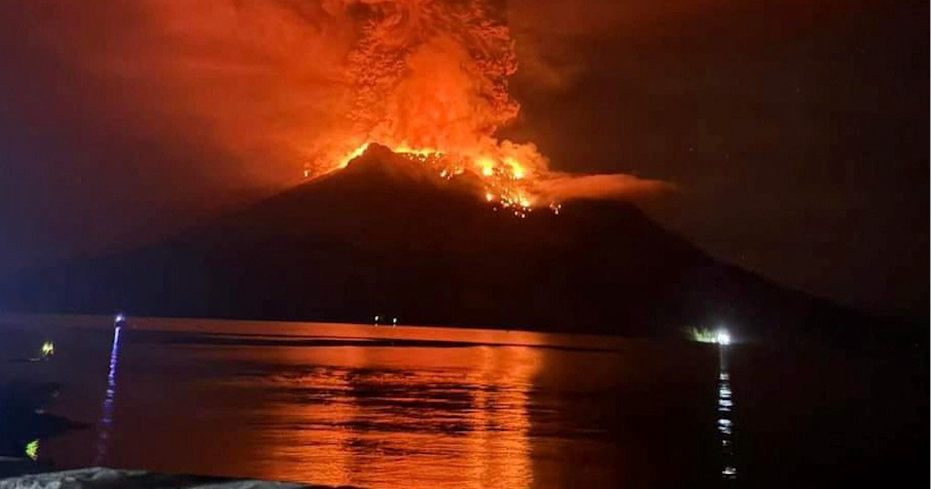
Indonesia officials warn of potential tsunami amid volcano eruption
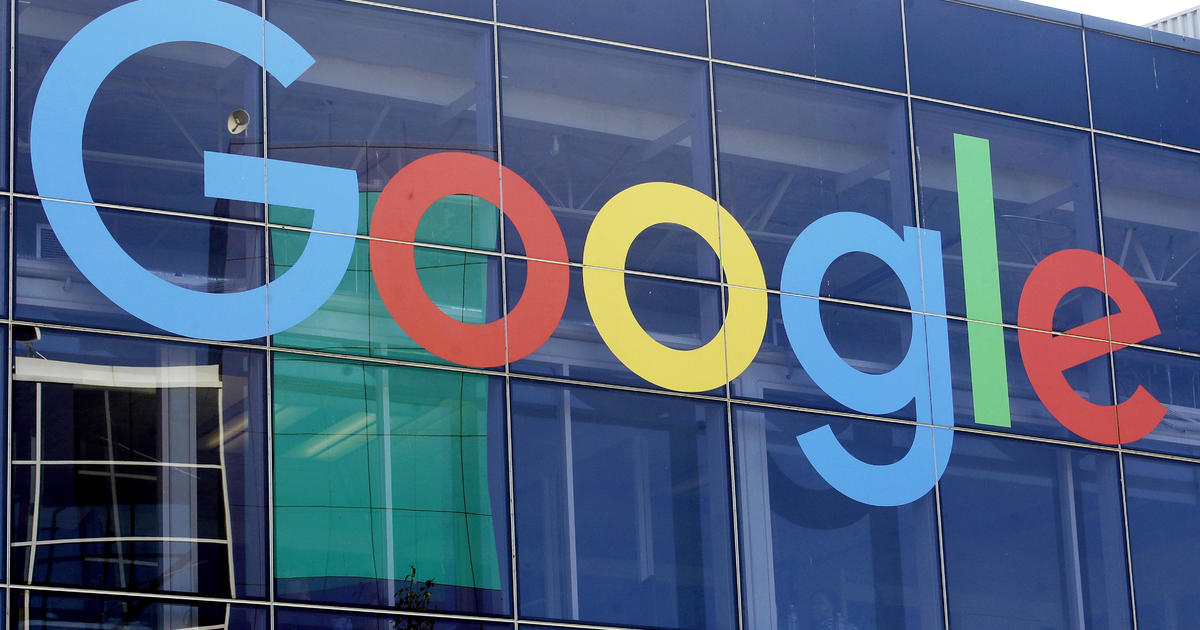
Google fires 28 workers after protest against contract with Israel
- Election 2024
- Entertainment
- Newsletters
- Photography
- Personal Finance
- AP Investigations
- AP Buyline Personal Finance
- AP Buyline Shopping
- Press Releases
- Israel-Hamas War
- Russia-Ukraine War
- Global elections
- Asia Pacific
- Latin America
- Middle East
- Election Results
- Delegate Tracker
- AP & Elections
- Auto Racing
- 2024 Paris Olympic Games
- Movie reviews
- Book reviews
- Personal finance
- Financial Markets
- Business Highlights
- Financial wellness
- Artificial Intelligence
- Social Media
US issues sweeping new travel warning for China, Hong Kong
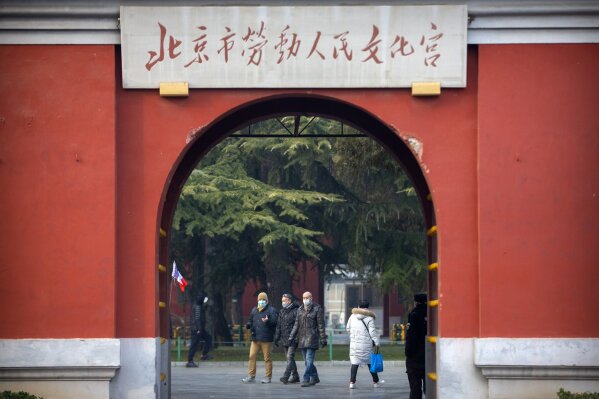
In this Jan. 27, 2020, photo, members of a group of foreign tourists wearing face masks to protect against the coronavirus walk through a public park near the Forbidden City in Beijing. The U.S. has issued a new advisory Tuesday, Sept. 15, 2020, warning against travel to mainland China and Hong Kong, citing the risk of “arbitrary detention” and “arbitrary enforcement of local laws.” (AP Photo/Mark Schiefelbein)
FILE - In this July 4, 2020, file photo, a woman carries an American flag during a protest outside the U.S. Consulate in Hong Kong. The U.S. has issued a new advisory Tuesday, Sept. 15, 2020, warning against travel to mainland China and Hong Kong, citing the risk of “arbitrary detention” and “arbitrary enforcement of local laws.” (AP Photo/Kin Cheung, File)
- Copy Link copied
BEIJING (AP) — The U.S. on Tuesday issued a sweeping new advisory warning against travel to mainland China and Hong Kong, citing the risk of “arbitrary detention” and “arbitrary enforcement of local laws.”
The advisory is likely to heighten tensions between the sides that have spiked since Beijing’s imposition on Hong Kong of a strict new national security law in June that has already been met with a series of U.S. punitive actions.
The statement warned U.S. citizens that China imposes “arbitrary detention and exit bans” to compel cooperation with investigations, pressure family members to return to China from abroad, influence civil disputes and “gain bargaining leverage over foreign governments.”
“U.S. citizens traveling or residing in China or Hong Kong, may be detained without access to U.S. consular services or information about their alleged crime. U.S. citizens may be subjected to prolonged interrogations and extended detention without due process of law,” the advisory said.
In Hong Kong, China “unilaterally and arbitrarily exercises police and security power,” the advisory said, adding that new legislation also covers offenses committed by non-Hong Kong residents or organizations outside of Hong Kong, possibly subjecting U.S. citizens who have publicly criticized China to a “heightened risk of arrest, detention, expulsion, or prosecution.”
When in Hong Kong, U.S. citizens are “strongly cautioned to be aware of their surroundings and avoid demonstrations,” the advisory said.
Chinese foreign ministry spokesperson Wang Wenbin told reporters at a daily briefing Tuesday that the U.S. should “fully respect the facts and should not engage in unwarranted political manipulation” when issuing such advisories.
“China has always protected the safety and legal rights of foreigners in China in accordance with law. China is one of the safest countries in the world,” Wang said. “Of course, foreigners in China also have an obligation to abide by Chinese laws.”
Last month, the Trump administration suspended or terminated three bilateral agreements with Hong Kong covering extradition and tax exemptions, citing Beijing’s violation of its pledge for Hong Kong to retain broad autonomy for 50 years after the former British colony’s 1997 handover to Chinese rule.
Other Western nations have also suspended their extradition treaties with Hong Kong following the national security’s law’s passage.
The U.S. has also acted to end special trade and commercial privileges that Hong Kong had enjoyed and has imposed sanctions on Hong Kong and Chinese officials, including Hong Kong’s pro-Beijing leader Carrie Lam, involved in enforcing the new security law.
Tensions between Beijing and Washington have hit their lowest point in decades amid simmering disputes over trade, technology, Taiwan, Tibet, the South China Sea, the coronavirus pandemic and, most recently, Hong Kong. The impact of the tensions has been felt in the tit-for-tat closures of diplomatic missions as well as visa restrictions on students and journalists.
The latest travel advisory did not offer any new warnings regarding COVID-19 in mainland China and Hong Kong, but referred travelers to earlier notices advising Americans to avoid the regions and return home from them if possible.
President Donald Trump has assigned full blame to Beijing for the coronavirus outbreak in the U.S., deflecting criticism of his own handling of the pandemic that threatens his reelection.
The virus was first detected in the central Chinese city of Wuhan late last year, leading to the global pandemic. Critics have accused Beijing of an initial cover-up attempt, although Trump himself has admitted to downplaying the severity of the virus as early as February.
China appears to have contained the virus within its borders, reporting no new cases of domestic infection in a month, while Hong Kong has also radically brought down its numbers of new cases.
- Skip to main content
- Skip to "About this site"
Language selection
Search travel.gc.ca.
Help us to improve our website. Take our survey !
COVID-19: travel health notice for all travellers
Hong Kong travel advice
Latest updates: Laws and culture – updated information on national security laws
Last updated: April 11, 2024 10:29 ET
On this page
Safety and security, entry and exit requirements, laws and culture, natural disasters and climate, hong kong - exercise a high degree of caution.
Exercise a high degree of caution in Hong Kong due to the risk of arbitrary enforcement of local laws.
Back to top
Petty crime
Petty crime such as pickpocketing and purse snatching occurs, particularly:
- at the airport
- on public transportation
- in main shopping areas and markets
- in hotel lobbies
- on crowded streets
- at tourist attractions
Violent crime
Serious crime against foreigners is relatively rare, but incidents may occur.
While in Hong Kong:
- be vigilant in crowded locations
- don’t carry large sums of money
- ensure that your belongings, including your passport and other travel documents, are secure at all times
Spiked food and drinks
Foreigners have been targeted in incidents of drink spiking, particularly in the Wan Chai area. Items containing drugs could put you at risk of sexual assault, robbery or credit card fraud.
- Be cautious of unsolicited requests from strangers
- Never leave food or drinks unattended or in the care of strangers
- Be wary of accepting snacks, beverages, gum or cigarettes from new acquaintances
Credit card and ATM fraud occurs. When using debit or credit cards:
- pay careful attention when others are handling your cards
- use ATMs located inside a bank or business
- avoid using card readers with an irregular or unusual feature
- cover the keypad with one hand when entering your PIN
- check for any unauthorized transactions on your account statements
Overseas fraud
Demonstrations
Demonstrations are illegal without prior approval from the local government. However, unauthorized and spontaneous demonstrations could still occur.
Even peaceful demonstrations can turn violent at any time. They can also lead to disruptions to traffic and public transportation.
If you participate in or are witness to a demonstration, you may be subject to scrutiny and severe legal action.
- Avoid areas where demonstrations and large gatherings are taking place
- Don’t film or take pictures of demonstrations
- Follow the instructions of local authorities
- Monitor local media for information on ongoing demonstrations
Mass gatherings (large-scale events)
Cyber security
You shouldn’t expect internet privacy. Your communications may be monitored at any time, and authorities may review the content stored or consulted on your electronic devices.
Authorities will be on the lookout for material appearing to be seditious or that is critical of mainland China and local authorities
Cyber security while travelling
Journalism and research
Journalists and other media workers in Hong Kong are now facing certain restrictions in the context of their work.
You should be particularly vigilant if researching or reporting on subjects critical of or sensitive to the government. You may face censorship.
Road safety
Traffic is congested in urban areas. Roads are narrow and frequently unmarked.
Public transportation
Public transportation in Hong Kong is safe and reliable.
Public transportation in Hong Kong - Transport Department of Hong Kong
Taxis are widely available. Ride-sharing services are also available.
Most taxi drivers don’t speak English or French. If you don’t speak Chinese, you should arrange for a person to write out your destination in Chinese characters before you go.
- Use only officially marked taxis or a trusted ride-sharing app
- Negotiate fares in advance, or insist that the driver use the meter, as you may be overcharged
We do not make assessments on the compliance of foreign domestic airlines with international safety standards.
Information about foreign domestic airlines
Hong Kong is a special administrative region (SAR) of the People's Republic of China.
Every country or territory decides who can enter or exit through its borders. The Government of Canada cannot intervene on your behalf if you do not meet your destination’s entry or exit requirements.
We have obtained the information on this page from the Chinese authorities. It can, however, change at any time.
Verify this information with the Foreign Representatives in Canada .
Entry requirements vary depending on the type of passport you use for travel.
Before you travel, check with your transportation company about passport requirements. Its rules on passport validity may be more stringent than the country’s entry rules.
Regular Canadian passport
Your passport must be valid at least 1 month beyond the date you expect to leave Hong Kong.
Passport for official travel
Different entry rules may apply.
Official travel
Passport with “X” gender identifier
While the Government of Canada issues passports with an “X” gender identifier, it cannot guarantee your entry or transit through other countries. You might face entry restrictions in countries that do not recognize the “X” gender identifier. Before you leave, check with the closest foreign representative for your destination.
Other travel documents
Different entry rules may apply when travelling with a temporary passport or an emergency travel document. Before you leave, check with the closest foreign representative for your destination.
Useful links
- Foreign Representatives in Canada
- Canadian passports
Tourist visa: not required for stays of up to 90 days Business visa: not required for stays of up to 90 days Student visa: required
If you plan to visit or transit through mainland China, make sure you obtain a Chinese visa before your trip.
If you plan to travel between Hong Kong, Macao and mainland China, make sure you apply for a visa allowing multiple entries.
- Immigration, visas and residency information - Immigration Department of Hong Kong
- Applying for visas for mainland China in Hong Kong - Office of the Commissioner of the Ministry of Foreign Affairs of China in Hong Kong
- Entry/exit requirements for mainland China
Screening of digital devices
Border officials may review the content stored or consulted on your electronic devices, particularly at border crossings between Hong Kong and mainland China.
Temperature screening
All travellers are subject to body temperature screening upon entry into Hong Kong.
Latest information for inbound travellers – Government of the Hong Kong Special Administrative Region
Yellow fever
Learn about potential entry requirements related to yellow fever (vaccines section).
Children and travel
Learn more about travelling with children .
Relevant Travel Health Notices
- Global Measles Notice - 13 March, 2024
- COVID-19 and International Travel - 13 March, 2024
This section contains information on possible health risks and restrictions regularly found or ongoing in the destination. Follow this advice to lower your risk of becoming ill while travelling. Not all risks are listed below.
Consult a health care professional or visit a travel health clinic preferably 6 weeks before you travel to get personalized health advice and recommendations.
Routine vaccines
Be sure that your routine vaccinations , as per your province or territory , are up-to-date before travelling, regardless of your destination.
Some of these vaccinations include measles-mumps-rubella (MMR), diphtheria, tetanus, pertussis, polio, varicella (chickenpox), influenza and others.
Pre-travel vaccines and medications
You may be at risk for preventable diseases while travelling in this destination. Talk to a travel health professional about which medications or vaccines may be right for you, based on your destination and itinerary.
Yellow fever is a disease caused by a flavivirus from the bite of an infected mosquito.
Travellers get vaccinated either because it is required to enter a country or because it is recommended for their protection.
- There is no risk of yellow fever in this country.
Country Entry Requirement*
- Proof of vaccination is not required to enter this country.
Recommendation
- Vaccination is not recommended.
* It is important to note that country entry requirements may not reflect your risk of yellow fever at your destination. It is recommended that you contact the nearest diplomatic or consular office of the destination(s) you will be visiting to verify any additional entry requirements.
About Yellow Fever
Yellow Fever Vaccination Centres in Canada
There is a risk of hepatitis A in this destination. It is a disease of the liver. People can get hepatitis A if they ingest contaminated food or water, eat foods prepared by an infectious person, or if they have close physical contact (such as oral-anal sex) with an infectious person, although casual contact among people does not spread the virus.
Practise safe food and water precautions and wash your hands often. Vaccination is recommended for all travellers to areas where hepatitis A is present.
Measles is a highly contagious viral disease. It can spread quickly from person to person by direct contact and through droplets in the air.
Anyone who is not protected against measles is at risk of being infected with it when travelling internationally.
Regardless of where you are going, talk to a health care professional before travelling to make sure you are fully protected against measles.
Japanese encephalitis is a viral infection that can cause swelling of the brain. It is spread to humans through the bite of an infected mosquito. Risk is very low for most travellers. Travellers at relatively higher risk may want to consider vaccination for JE prior to travelling.
Travellers are at higher risk if they will be:
- travelling long term (e.g. more than 30 days)
- making multiple trips to endemic areas
- staying for extended periods in rural areas
- visiting an area suffering a JE outbreak
- engaging in activities involving high contact with mosquitos (e.g., entomologists)
Hepatitis B is a risk in every destination. It is a viral liver disease that is easily transmitted from one person to another through exposure to blood and body fluids containing the hepatitis B virus. Travellers who may be exposed to blood or other bodily fluids (e.g., through sexual contact, medical treatment, sharing needles, tattooing, acupuncture or occupational exposure) are at higher risk of getting hepatitis B.
Hepatitis B vaccination is recommended for all travellers. Prevent hepatitis B infection by practicing safe sex, only using new and sterile drug equipment, and only getting tattoos and piercings in settings that follow public health regulations and standards.
Coronavirus disease (COVID-19) is an infectious viral disease. It can spread from person to person by direct contact and through droplets in the air.
It is recommended that all eligible travellers complete a COVID-19 vaccine series along with any additional recommended doses in Canada before travelling. Evidence shows that vaccines are very effective at preventing severe illness, hospitalization and death from COVID-19. While vaccination provides better protection against serious illness, you may still be at risk of infection from the virus that causes COVID-19. Anyone who has not completed a vaccine series is at increased risk of being infected with the virus that causes COVID-19 and is at greater risk for severe disease when travelling internationally.
Before travelling, verify your destination’s COVID-19 vaccination entry/exit requirements. Regardless of where you are going, talk to a health care professional before travelling to make sure you are adequately protected against COVID-19.
The best way to protect yourself from seasonal influenza (flu) is to get vaccinated every year. Get the flu shot at least 2 weeks before travelling.
The flu occurs worldwide.
- In the Northern Hemisphere, the flu season usually runs from November to April.
- In the Southern Hemisphere, the flu season usually runs between April and October.
- In the tropics, there is flu activity year round.
The flu vaccine available in one hemisphere may only offer partial protection against the flu in the other hemisphere.
The flu virus spreads from person to person when they cough or sneeze or by touching objects and surfaces that have been contaminated with the virus. Clean your hands often and wear a mask if you have a fever or respiratory symptoms.
In this destination, rabies may be present in some wildlife species, including bats. Rabies is a deadly disease that spreads to humans primarily through bites or scratches from an infected animal.
If you are bitten or scratched by an animal while travelling, immediately wash the wound with soap and clean water and see a health care professional.
Before travel, discuss rabies vaccination with a health care professional. It may be recommended for travellers who will be working directly with wildlife.
Safe food and water precautions
Many illnesses can be caused by eating food or drinking beverages contaminated by bacteria, parasites, toxins, or viruses, or by swimming or bathing in contaminated water.
- Learn more about food and water precautions to take to avoid getting sick by visiting our eat and drink safely abroad page. Remember: Boil it, cook it, peel it, or leave it!
- Avoid getting water into your eyes, mouth or nose when swimming or participating in activities in freshwater (streams, canals, lakes), particularly after flooding or heavy rain. Water may look clean but could still be polluted or contaminated.
- Avoid inhaling or swallowing water while bathing, showering, or swimming in pools or hot tubs.
Typhoid is a bacterial infection spread by contaminated food or water. Risk is higher among children, travellers going to rural areas, travellers visiting friends and relatives or those travelling for a long period of time.
Travellers visiting regions with a risk of typhoid, especially those exposed to places with poor sanitation, should speak to a health care professional about vaccination.
Insect bite prevention
Many diseases are spread by the bites of infected insects such as mosquitoes, ticks, fleas or flies. When travelling to areas where infected insects may be present:
- Use insect repellent (bug spray) on exposed skin
- Cover up with light-coloured, loose clothes made of tightly woven materials such as nylon or polyester
- Minimize exposure to insects
- Use mosquito netting when sleeping outdoors or in buildings that are not fully enclosed
To learn more about how you can reduce your risk of infection and disease caused by bites, both at home and abroad, visit our insect bite prevention page.
Find out what types of insects are present where you’re travelling, when they’re most active, and the symptoms of the diseases they spread.
There is a risk of chikungunya in this country. The risk may vary between regions of a country. Chikungunya is a virus spread through the bite of an infected mosquito. Chikungunya can cause a viral disease that typically causes fever and pain in the joints. In some cases, the joint pain can be severe and last for months or years.
Protect yourself from mosquito bites at all times. There is no vaccine available for chikungunya.
Crimean-Congo haemorrhagic fever is a viral disease that can cause fever, pain and bleeding under the skin. In some cases, it can be fatal. It spreads to humans through contact with infected animal blood or tissues, or from the bite of an infected tick. Risk is generally low for most travellers. Protect yourself from tick bites and avoid animals, particularly livestock. There is no vaccine available for Crimean-Congo haemorrhagic fever.
- In this country, risk of dengue is sporadic. It is a viral disease spread to humans by mosquito bites.
- Dengue can cause flu-like symptoms. In some cases, it can lead to severe dengue, which can be fatal.
- The level of risk of dengue changes seasonally, and varies from year to year. The level of risk also varies between regions in a country and can depend on the elevation in the region.
- Mosquitoes carrying dengue typically bite during the daytime, particularly around sunrise and sunset.
- Protect yourself from mosquito bites . There is no vaccine or medication that protects against dengue fever.
Animal precautions
Some infections, such as rabies and influenza, can be shared between humans and animals. Certain types of activities may increase your chance of contact with animals, such as travelling in rural or forested areas, camping, hiking, and visiting wet markets (places where live animals are slaughtered and sold) or caves.
Travellers are cautioned to avoid contact with animals, including dogs, livestock (pigs, cows), monkeys, snakes, rodents, birds, and bats, and to avoid eating undercooked wild game.
Closely supervise children, as they are more likely to come in contact with animals.
Person-to-person infections
Stay home if you’re sick and practise proper cough and sneeze etiquette , which includes coughing or sneezing into a tissue or the bend of your arm, not your hand. Reduce your risk of colds, the flu and other illnesses by:
- washing your hands often
- avoiding or limiting the amount of time spent in closed spaces, crowded places, or at large-scale events (concerts, sporting events, rallies)
- avoiding close physical contact with people who may be showing symptoms of illness
Sexually transmitted infections (STIs) , HIV , and mpox are spread through blood and bodily fluids; use condoms, practise safe sex, and limit your number of sexual partners. Check with your local public health authority pre-travel to determine your eligibility for mpox vaccine.
Tuberculosis is an infection caused by bacteria and usually affects the lungs.
For most travellers the risk of tuberculosis is low.
Travellers who may be at high risk while travelling in regions with risk of tuberculosis should discuss pre- and post-travel options with a health care professional.
High-risk travellers include those visiting or working in prisons, refugee camps, homeless shelters, or hospitals, or travellers visiting friends and relatives.
Medical services and facilities
Good medical care is widely available. Private hospitals may require confirmation of insurance coverage, guarantee of payment or an up-front deposit before admitting patients.
Make sure you get travel insurance that includes coverage for medical evacuation and hospital stays.
Travel health and safety
Keep in Mind...
The decision to travel is the sole responsibility of the traveller. The traveller is also responsible for his or her own personal safety.
Be prepared. Do not expect medical services to be the same as in Canada. Pack a travel health kit , especially if you will be travelling away from major city centres.
You must abide by local laws.
Learn about what you should do and how we can help if you are arrested or detained abroad .
Safeguarding National Security Ordinance 2024 and National Security Law 2020
The 2024 Safeguarding National Security Ordinance and the 2020 National Security Law have broadened the range of national security offenses, which now include:
- organisation and perpetration of terrorist activities
- unlawful disclosure of state secrets
- collusion with a foreign country or with external elements that endanger national security
- support to someone accused of endangering national security
They could also include activities that are not considered illegal in Canada and that occurred outside of Hong Kong, and could include social media posts. The Hong Kong SAR Government has issued arrest warrants for individuals outside of Hong Kong they identified as criminals who committed acts endangering national security. If you are suspected of endangering national security, you could be detained without charge for up to 16 days and denied access to a legal representative for up to 48 hours.
You risk being arbitrarily detained on national security grounds, even while you are transiting through Hong Kong. You could be subject to transfer to mainland China for prosecution. Penalties are severe and include life imprisonment.
Bans and sanctions
The Chinese government may ban or sanction entities or individuals for actions, including oral or written statements, and associations with entities that are critical of:
- the Communist Party of China
- the Chinese government
- Chinese leaders and policies
The Government of the People's Republic of China does not publicize a list of banned or sanctioned entities or individuals, and the implementation of bans or sanctions remains vague. The effect on individuals associated with banned or sanctioned entities is unknown.
It could include:
- a ban on travel to mainland China, Hong Kong and Macao
- freezing of assets
- prohibition of business or association with Chinese citizens and organizations
Hong Kong authorities can enforce Chinese court orders. If you believe you may be subject of a ban or sanctions, consult a lawyer and contact the closest office of the Government of Canada.
Movement restrictions
Under the national security and immigration laws, Hong Kong authorities may prevent specific individuals from leaving the territory. In the absence of clarifying legislation, these new powers may relate to investigations into an individual, their family or an employer, and criminal and civil matters.
You may not be aware that you are the subject of movement restrictions until you try to leave Hong Kong. It may be difficult to obtain information on movement restrictions from local authorities.
If you're unable to leave Hong Kong because of restrictions on your movement, consult a lawyer and inform the Consulate General of Canada in Hong Kong.
Facial recognition and use of video surveillance (CCTV)
Law enforcement agencies may rely on facial recognition technology and video surveillance to police, monitor and control illegal or restricted activities, including participation in demonstrations.
Penalties for possession, use or trafficking of illegal drugs are severe. Convicted offenders can expect jail sentences and heavy fines.
Drugs, alcohol and travel
Prohibited or controlled items
Hong Kong has strict laws regarding the use, importation or exportation of different items, including:
- firearms and live ammunition
- items that may be used as weapons, such as knuckledusters, extendable batons or stunning devices
- e-cigarettes
- powdered baby formula
- plant or animal products that could carry disease or pests
Your luggage will be scanned upon entry. You could face legal issues if you carry or try to travel with prohibited items.
Confirm the restrictions with the local authorities before travelling.
- Prohibited / Controlled Items - Customs and Excise Department of Hong Kong
- Restricted items - Hong Kong Police Force
Photography
Photography of military installations or government buildings may be restricted. Seek permission from local authorities before taking photographs.
Dual citizenship
The Nationality Law of the People's Republic of China applies in the Hong Kong Special Administrative Region (HKSAR). Under this law, dual citizenship is not legally recognized in Hong Kong.
If local authorities consider you a citizen of China, they may refuse to grant you access to Canadian consular services. This will prevent us from providing you with those services.
If you are a Canadian dual citizen born in Hong Kong or with current or previous Hong Kong residency, you need to complete a declaration of nationality in order to be treated as a Canadian citizen. Consult the Hong Kong Immigration Department regarding this process.
- Chinese nationality - Hong Kong Immigration Department
- General information for travellers with dual citizenship
International Child Abduction
The Hague Convention on the Civil Aspects of International Child Abduction is an international treaty. It can help parents with the return of children who have been removed to or retained in certain countries in violation of custody rights. The convention applies between Canada and Hong Kong.
If your child was wrongfully taken to, or is being held in Hong Kong, and if the applicable conditions are met, you may apply for the return of your child to the Hong Kong court.
If you are in this situation:
- act as quickly as you can
- contact the Central Authority for your province or territory of residence for information on starting an application under The Hague Convention
- consult a lawyer in Canada and in Hong Kong to explore all the legal options for the return of your child
- report the situation to the nearest Canadian government office abroad or to the Vulnerable Children’s Consular Unit at Global Affairs Canada by calling the Emergency Watch and Response Centre
If your child was removed from a country other than Canada, consult a lawyer to determine if The Hague Convention applies.
Be aware that Canadian consular officials cannot interfere in private legal matters or in another country’s judicial affairs.
- List of Canadian Central Authorities for the Hague Convention
- International Child Abduction: A Guidebook for Left-Behind Parents
- Travelling with children
- The Hague Convention - Hague Conference on Private International Law
- Canadian embassies and consulates by destination
- Emergency Watch and Response Centre
Traffic drives on the left.
As a tourist, you can use your valid Canadian driver's licence for up to 12 months. You should carry an international driving permit.
If you are a resident of Hong Kong, you can exchange your Canadian licence for a local one under certain conditions.
- Driving in Hong Kong - Transport Department of Hong Kong
- More about the International Driving Permit
The currency is the Hong Kong dollar (HKD).
Upon entering or leaving Hong Kong, you must make a declaration to customs if you travel with more than HKD 120,000 or the equivalent in other currencies. The sum can be in cash, cheques, money orders, traveller’s cheques or any other convertible assets.
Declaration of currency and bearer negotiable instruments - Customs and Excise Department of Hong Kong
Typhoons and monsoon
The rainy (or monsoon) season extends from May to October. Typhoons usually occur between April and October.
During this period, even small storm can quickly develop into typhoons. These severe storms can put you at risk and hamper the provision of essential services.
Severe rainstorms have occasionally caused flooding and landslides, resulting in loss of life and damage to infrastructure.
The Hong Kong observatory issues alerts before a significant storm or other meteorological risk.
If you decide to travel to Hong Kong during the rainy season:
- know that you may expose yourself to safety risks
- be prepared to change your travel plans on short notice, including cutting short or cancelling your trip
- stay informed of the latest regional weather forecasts
- carry emergency contact information for your airline or tour operator
- follow the advice and instructions of local authorities
- Current weather and alerts - Hong Kong Observatory
- Information on tropical cyclone warning signals - Hong Kong Observatory
- Tornadoes, cyclones, hurricanes, typhoons and monsoons
- Large-scale emergencies abroad
Heat and humidity
Humidity and heat are most severe during the hot season, from May to October.
Know the symptoms of dehydration and heatstroke, both of which can be fatal.
Air pollution
Air pollution can be severe in Hong Kong.
During periods of high pollution:
- limit outdoor activities
- monitor local media and air pollution levels
- follow the instructions of local authorities
Air pollution in Hong Kong - World Air Quality Index
Local services
Dial 999 for emergency assistance.
Consular assistance
For emergency consular assistance, call the Consulate General of Canada in Hong Kong and follow the instructions. At any time, you may also contact the Emergency Watch and Response Centre in Ottawa.
The decision to travel is your choice and you are responsible for your personal safety abroad. We take the safety and security of Canadians abroad very seriously and provide credible and timely information in our Travel Advice to enable you to make well-informed decisions regarding your travel abroad.
The content on this page is provided for information only. While we make every effort to give you correct information, it is provided on an "as is" basis without warranty of any kind, expressed or implied. The Government of Canada does not assume responsibility and will not be liable for any damages in connection to the information provided.
If you need consular assistance while abroad, we will make every effort to help you. However, there may be constraints that will limit the ability of the Government of Canada to provide services.
Learn more about consular services .
Risk Levels
take normal security precautions.
Take similar precautions to those you would take in Canada.
Exercise a high degree of caution
There are certain safety and security concerns or the situation could change quickly. Be very cautious at all times, monitor local media and follow the instructions of local authorities.
IMPORTANT: The two levels below are official Government of Canada Travel Advisories and are issued when the safety and security of Canadians travelling or living in the country or region may be at risk.
Avoid non-essential travel
Your safety and security could be at risk. You should think about your need to travel to this country, territory or region based on family or business requirements, knowledge of or familiarity with the region, and other factors. If you are already there, think about whether you really need to be there. If you do not need to be there, you should think about leaving.
Avoid all travel
You should not travel to this country, territory or region. Your personal safety and security are at great risk. If you are already there, you should think about leaving if it is safe to do so.
Cookies on GOV.UK
We use some essential cookies to make this website work.
We’d like to set additional cookies to understand how you use GOV.UK, remember your settings and improve government services.
We also use cookies set by other sites to help us deliver content from their services.
You have accepted additional cookies. You can change your cookie settings at any time.
You have rejected additional cookies. You can change your cookie settings at any time.
- Passports, travel and living abroad
- Travel abroad
- Foreign travel advice
Warnings and insurance
This travel advice covers the Hong Kong Special Administrative Region (SAR). For mainland China, see travel advice for China and for Macao SAR, see Macao travel advice .
The Foreign, Commonwealth & Development Office ( FCDO ) provides advice about risks of travel to help British nationals make informed decisions. Find out more about FCDO travel advice .
Dual Chinese-British nationality
Hong Kong does not recognise dual nationality. If you have both British and Chinese nationality, you may be treated as a Chinese citizen by local authorities, even if you enter Hong Kong on your British passport. If this is the case, the British Consulate-General may not be able to offer you consular help.
If you have formally renounced Chinese citizenship, carry evidence that you have done so.
See guidance on nationality in China .
Before you travel
No travel can be guaranteed safe. Read all the advice in this guide and any specific travel advice that applies to you:
- disabled people
- LGBT+ people
Follow and contact FCDO travel on Twitter , Facebook and Instagram . You can also sign up to get email notifications when this advice is updated.
Travel insurance
If you choose to travel, research your destinations and get appropriate travel insurance . Insurance should cover your itinerary, planned activities and expenses in an emergency.
Related content
Is this page useful.
- Yes this page is useful
- No this page is not useful
Help us improve GOV.UK
Don’t include personal or financial information like your National Insurance number or credit card details.
To help us improve GOV.UK, we’d like to know more about your visit today. We’ll send you a link to a feedback form. It will take only 2 minutes to fill in. Don’t worry we won’t send you spam or share your email address with anyone.
Update April 12, 2024
Information for u.s. citizens in the middle east.
- Travel Advisories |
- Contact Us |
- MyTravelGov |

Find U.S. Embassies & Consulates
Travel.state.gov, congressional liaison, special issuance agency, u.s. passports, international travel, intercountry adoption, international parental child abduction, records and authentications, popular links, travel advisories, mytravelgov, stay connected, legal resources, legal information, info for u.s. law enforcement, replace or certify documents.
Share this page:
Learn about your destination
Take 90 seconds for safer travel.
Travel Advisory Levels
Enroll in step.

Subscribe to get up-to-date safety and security information and help us reach you in an emergency abroad.
Recommended Web Browsers: Microsoft Edge or Google Chrome.
External Link
You are about to leave travel.state.gov for an external website that is not maintained by the U.S. Department of State.
Links to external websites are provided as a convenience and should not be construed as an endorsement by the U.S. Department of State of the views or products contained therein. If you wish to remain on travel.state.gov, click the "cancel" message.
You are about to visit:
The US Department of State released a new travel advisory Friday for US citizens traveling to mainland China, Hong Kong and Macau suggesting travelers “reconsider travel” to the areas due to “arbitrary enforcement of local laws…and the risk of wrongful detentions.”
The advisory for mainland China states:
U.S. citizens traveling or residing in the PRC may be detained without access to U.S. consular services or information about their alleged crime. U.S. citizens in the PRC may be subjected to interrogations and detention without fair and transparent treatment under the law.
The advisory for Hong Kong specifically mentions the country’s National Security Law , saying:
Since the imposition of the National Security Law on June 30, 2020, the People’s Republic of China (PRC) has demonstrated an intent to use the law to target a broad range of activities such as acts of secession, subversion, terrorism, and collusion with foreign entities. The National Security Law also covers offenses committed by non-Hong Kong SAR [semi-autonomous region] residents or organizations outside of the Hong Kong SAR, which could subject U.S. citizens who have been publicly critical of the PRC and/or the administration of the Hong Kong SAR to a heightened risk of arrest, detention, expulsion, or prosecution.
The move comes amidst strain between the US and China. Just this past Wednesday, China enacted a law to allow “countermeasures” against those that impose sanctions on the country. On the US side, President Joe Biden has also been slowly ramping up his language surrounding Chinese President Xi Jinping. In 2022 Biden stated , “From China to Russia and beyond, they’re betting that democracy’s days are numbered.” Then in April, he stated that Xi was an “autocrat” and China was “essentially a dictatorship.” And on June 21, Biden called Xi a “dictator.”
The State Department has largely supported Biden’s remarks, with a spokesperson saying , “The President believes that diplomacy…is a responsible way to manage tensions, clear up misperceptions, avoid miscalculations…That does not mean, of course, we will not be blunt and forthright about our differences.”
The move also comes soon after a US citizen, John Shin-wan Leung , was sentenced to life in prison in May for “espionage.” His is one of many high-profile arrests in China that have raised international concerns. In 2021, China arrested Australian journalist Cheng Lei on a similar charge. Another Australian citizen, Dr. Yang Hengju , was detained in January. And two Canadian citizens, Michael Kovrig and Michael Spavor , were charged with “stealing state secrets” in 2020.
Charles Manson sentenced to death
On April 19, 1971, Charles Manson was sentenced to death for ordering the murders of Sharon Tate and others. The sentence was then commuted to life after the Supreme Court of California overturned the death penalty in 1972. Learn more about the trial of Charles Manson from the University of Missouri - Kansas City School of Law.
The Beatles signed 10-year partnership
On April 19, 1967, John, Paul, George and Ringo - aka "The Beatles" - signed a partnership deed agreeing that the group would continue for a (further) period of ten years. When The Beatles split up prematurely in 1970, Paul applied to have the partnership terminated and a receiver appointed. Read a legal analysis of Paul McCartney’s 1970 lawsuit against John, George and Ringo .

Search Smartraveller

Latest update
Exercise a high degree of caution in Hong Kong.
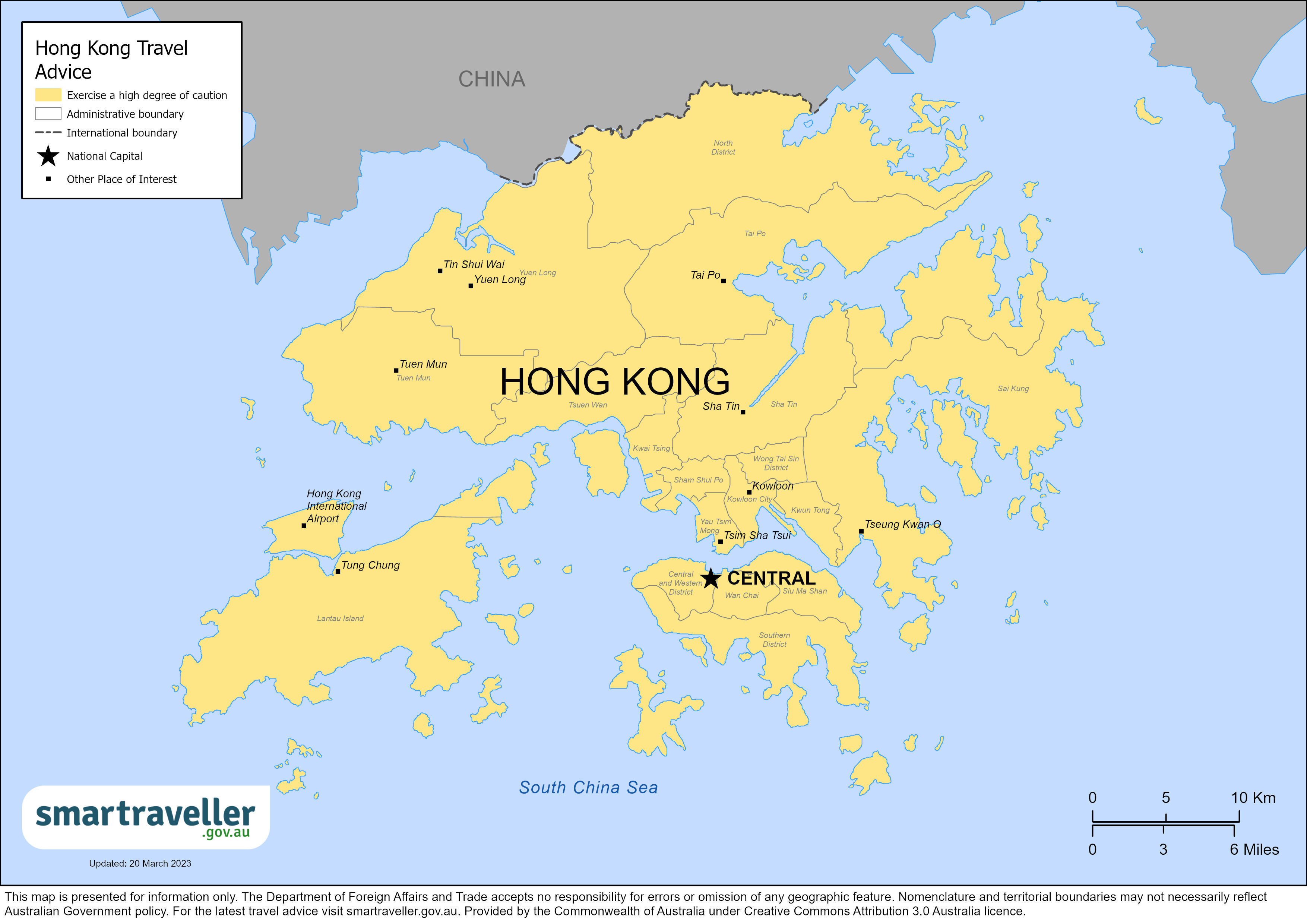
Hong Kong (PDF 368.67 KB)
Asia (PDF 2.21 MB)
Local emergency contacts
Fire and rescue services, medical emergencies, advice levels.
Exercise a high degree of caution in Hong Kong.
Exercise a high degree of caution in Hong Kong.
- The Hong Kong Government strictly controls demonstrations. Authorities may arrest protesters. Avoid protests and large gatherings. Don't photograph or video protests.
- Violent crime is rare, but some petty crime happens. Thieves target tourist spots and crowded places, such as markets and trains. Take care of your belongings.
- Travellers have had drinks spiked in bars and nightclubs. This may lead to theft or credit card fraud. Don't accept food, drink, cigarettes or gum from strangers. Don't leave your drinks unattended.
- Scammers may ask for help carrying luggage or ask for money. Fake arrests, lotteries, or schemes involving property, holiday clubs or timeshares occur. Never carry anything for someone you don't know. Do thorough research. Get legal advice before sending money or signing documents.
- Hong Kong experiences typhoons. If the warning level is Typhoon 8 or Black Rain Signal, businesses, transport services and the Australian Consulate-General will close. Follow advice from local officials. Contact your travel operator about delays.
Full travel advice: Safety
- It's illegal to carry sleeping tablets and some medication without a prescription. Carry a copy of your prescription or a letter from your doctor.
- Hong Kong has very high humidity from May to October. Reduce physical and outdoor activities on very humid days. Hong Kong can have very high pollution levels. If you have a heart or breathing condition, do less physical activity when the air quality index health risk is high.
- Hand, foot and mouth disease (HFMD) is common. It mostly affects children aged under 10 years, but adult cases occur, particularly in young adults. Wash your hands thoroughly and often.
- Waterborne, foodborne and other infectious diseases including bird flu sometimes occur. Drink only filtered or bottled water from bottles with sealed lids. Avoid raw or undercooked food. Avoid contact with animals.
Full travel advice: Health
- Hong Kong's Safeguarding National Security law will come into effect on 23 March 2024. The law includes additional national security offences. You could be detained without charge for up to 16 days and denied access to a lawyer for up to 48 hours.
- The 2024 Safeguarding National Security Law and the 2020 National Security Law may be interpreted broadly. The laws could be applied to activities that occurred outside Hong Kong, including social media posts. You could break the law without intending to. You may be at increased risk of detention. The maximum penalty under these laws in Hong Kong is life imprisonment. The Australian Government can't intervene in the Hong Kong judicial process. Denial of entry to Hong Kong is also possible.
- Don't use, carry or traffic illegal drugs. Penalties include heavy fines and jail time.
- Cannabidiol (CBD) is listed as a dangerous drug in Hong Kong. Possession and consumption carries a maximum penalty of seven years imprisonment. Trafficking and illicit manufacturing carries a maximum penalty of life imprisonment.
- It's illegal to take part in public demonstrations without Hong Kong government approval. Avoid large public gatherings.
- Chinese law doesn't recognise dual nationality. The Australian Government may be unable to help if you enter Hong Kong on a travel document other than your Australian passport or if you're deemed a Hong Kong or Chinese national. If you're travelling from Hong Kong to Macau or mainland China, use your Australian passport.
- Hong Kong law allows dual nationals of Chinese descent to register their Australian nationality with the Immigration Department . If Hong Kong authorities consider you a citizen of China, they may refuse to grant you access to Australian consular services. This will prevent the Australian Government from providing you with those services.
Full travel advice: Local laws
- Hong Kong has separate immigration regulations to China. You generally won't need a tourist visa if you stay less than 90 days. In all other cases, you'll need a visa. Contact the Hong Kong Economic and Trade Office in Sydney for details.
- Your temperature may be checked when you arrive in Hong Kong. For the latest requirements, see Hong Kong Centre for Health Protection or contact your airline or travel agent.
- If you're travelling from Hong Kong to mainland China, you'll need a PRC visa.
Full travel advice: Travel
Local contacts
- The Consular Services Charter details what we can and can't do to help you overseas.
- For consular assistance, contact the Australian Consulate-General in Hong Kong .
- To stay up to date with local information, follow the Consulate-General's social media accounts.
Full travel advice: Local contacts
Full advice
Civil unrest and political tension.
Public protests and events that draw large groups of people can turn violent.
The Hong Kong Government prohibits demonstrations that they haven't approved. Authorities may arrest protesters.
Avoid protests, demonstrations and large gatherings.
Don't photograph, film or participate in protests or other acts that authorities may consider provocative.
If there are signs of disorder, move away quickly and seek shelter in a safe place.
Increased screening, including of digital devices, is possible for travellers crossing between Hong Kong and mainland China.
To stay safe during civil unrest:
- avoid large gatherings and protests
- monitor the media for possible unrest and avoid those areas
- follow the advice of local authorities
More information:
- Demonstrations and civil unrest
- Transport Department – special traffic news
- Hong Kong Police Facebook
- Hong Kong Police 'X' (formerly Twitter): @hkpoliceforce
- Local media: https://www.scmp.com/ or https://news.rthk.hk/rthk/en/
Terrorism is a threat worldwide.
Terrorist threats
Petty crime
There's little violent crime in Hong Kong. You could encounter pickpocketing and street theft.
Thieves target tourist spots and crowded places such as markets and trains.
Take care of your belongings, especially in crowded places.
Drink spiking
Foreigners have had drinks spiked in bars and nightclubs. Drink spiking may be combined with theft or credit card fraud.
To reduce your risk of drink spiking:
- don't accept drinks, food, gum or cigarettes from strangers or new friends
- don't leave food or drinks unattended
Partying safely
Scams against Australian travellers are increasing.
Criminals sometimes present themselves as people in need.
One scam starts via the internet. A person might offer you gift cards or money to help carry someone's luggage on an international flight. They may ask for your money, credit card or online bank account details.
Other reported scams involve:
- fake arrests
- holiday club or timeshare schemes
- scratch lottery tickets
- foreign lottery schemes
- relationships
Be wary of strangers asking for your help.
Never carry anything for anyone you don't know and trust, especially when crossing international borders. There's a risk that criminals have hidden drugs or other illegal items inside.
To avoid becoming a victim of a scam:
- don't send money or give credit card or bank account details to anyone you don't know and trust
- thoroughly research any scheme or agreement before signing or paying money
- seek legal advice before signing any property contract
Cyber security
You may be at risk of cyber-based threats during overseas travel to any country. Digital identity theft is a growing concern. Your devices and personal data can be compromised, especially if you're connecting to Wi-Fi, using or connecting to shared or public computers, or to Bluetooth.
Social media can also be risky in destinations where there are social or political tensions, or laws that may seem unreasonable by Australian standards. Travellers have been arrested for things they have said on social media. Don't comment on local or political events on your social media.
More information:
- Cyber security when travelling overseas
Climate and natural disasters
Hong Kong experiences typhoons .
Local safety rules require businesses and transport services to close during typhoons or very heavy rain.
The Australian Consulate-General in Hong Kong closes when the 'Typhoon 8' or 'Black Rain' signal is given.
Authorities may delay or suspend flights and ferries into and out of Hong Kong. Contact your travel operator or airline to find out about delays.
If there's a typhoon:
- monitor weather forecasts and plan accordingly
- know your hotel or cruise ship's evacuation plans
- secure your passport in a safe, waterproof location
- take official warnings seriously
If there's a natural disaster or severe weather :
- monitor the news and other local information sources
- monitor the Global Disaster Alert and Coordination System
- keep in contact with friends and family
Hong Kong Observatory
Travel insurance
Get comprehensive travel insurance before you leave.
Your policy needs to cover all overseas medical costs, including medical evacuation. The Australian Government won't pay for these costs.
If you can't afford travel insurance, you can't afford to travel. This applies to everyone, no matter how healthy and fit you are.
If you're not insured, you may have to pay many thousands of dollars up-front for medical care.
- what activities and care your policy covers
- that your insurance covers you for the whole time you'll be away
Physical and mental health
Consider your physical and mental health before you travel, especially if you have an existing medical condition.
See your doctor or travel clinic to:
- have a basic health check-up
- ask if your travel plans may affect your health
- plan any vaccinations you need
Do this at least 8 weeks before you leave.
If you have immediate concerns for your welfare or the welfare of another Australian, call the 24-hour Consular Emergency Centre on +61 2 6261 3305 or contact your nearest Australian Embassy, High Commission or Consulate to discuss counselling hotlines and services available in your location.
- General health advice
- Healthy holiday tips (Healthdirect Australia)
Medications
Not all medication available over the counter or by prescription in Australia is available in other countries. Some may even be considered illegal or a controlled substance, even if prescribed by an Australian doctor.
If you plan to bring medication, check if it's legal in Hong Kong. Take enough legal medicine for your trip.
It's illegal to have sleeping tablets and certain other medications without a prescription. These include medications used to treat erectile dysfunction or anxiety.
Carry a copy of your prescription or a letter from your doctor stating:
- what the medicine is
- your required dosage
- that it's for personal use
- Hong Kong Customs and Excise Department
Health risks
Hong Kong experiences very high humidity during summer, from May to October.
Reduce physical exertion and outdoor activities on very humid days.
Air pollution
High levels of air pollution may trigger bronchial, sinus or asthma conditions.
If you have an existing heart or breathing difficulties, reduce physical and outdoor activities on days with high pollution.
You can monitor real-time air quality index reports for Hong Kong.
Insect-borne diseases
Outbreaks of mosquito-borne illnesses, including dengue , sometimes occur.
To protect yourself from disease:
- ensure your accommodation is insect-proof
- use insect repellent
- wear long, loose, light-coloured clothing
Hand, foot and mouth disease
Hand, foot and mouth disease (HFMD) is common. Serious outbreaks sometimes occur. Outbreaks usually start in March or April and peak in May. Sometimes they last until October.
HFMD mostly affects children aged younger than 10 years, but adult cases, particularly in young adults, occur.
HFMD is spread by direct contact with discharges of infected people.
Other health risks
Waterborne, foodborne and other infectious diseases occur sometimes. These include:
- tuberculosis
To protect yourself from illness:
- drink only filtered water or bottled water from bottles with sealed lids
Seek medical advice if you have a fever or diarrhoea.
Bird flu (avian influenza)
Human cases of avian influenza A (H7N9) have been reported in mainland China.
The Hong Kong Special Administrative Region (SAR) Government is currently at 'Alert' response level for influenza, including avian influenza A (H7N9). This is the lowest level in the 3-tier alert system.
To reduce your risk:
- wash your hands often
- use good food safety practices
- avoid contact with animals
- Department of Health and Aged Care
- World Health Organisation
Middle East respiratory syndrome coronavirus
The Hong Kong SAR Government is currently at 'Alert' response level for Middle East respiratory syndrome coronavirus (MERS-CoV) . This is the lowest level in the 3-tier alert system.
Hong Kong's Department of Health checks for MERS-CoV at border control points.
Travellers who arrive in, or transit through, Hong Kong and have flu-like symptoms may be sent to a public hospital. The hospital will isolate the person until they test negative for MERS-CoV.
- Hong Kong Centre for Health Protection
Medical care
Medical facilities.
Medical services and facilities are of a high standard.
Costs can be higher than in Australia.
Private hospitals may require you to confirm your insurance cover or pay a deposit up-front before they will admit you.
You're subject to all local laws and penalties, including those that may appear harsh by Australian standards. Research local laws before travelling.
Hong Kong's Safeguarding National Security law will come into effect on 23 March 2024. The law includes additional national security offences. You could be detained without charge for up to 16 days and denied access to a lawyer for up to 48 hours. People arrested under national security laws have faced lengthy periods on remand while their cases are heard by Hong Kong courts.
The 2024 Safeguarding National Security Law and the 2020 National Security Law may be interpreted broadly. The laws could be applied to activities that occurred outside Hong Kong, including social media posts. You could break the laws without intending to, and you may be at increased risk of detention. The maximum penalty under these laws in Hong Kong is life imprisonment.
Under the new security laws, you could be deported or face possible transfer to mainland China for prosecution under mainland law. Denial of entry to Hong Kong is also possible. Hong Kong authorities have issued arrest warrants against individuals living outside Hong Kong, including in Australia. Hong Kong authorities have also offered financial rewards for information on those individuals.
If you're arrested or jailed, the Australian Government will do what it can to help you under our Consular Services Charter . But we can't get you out of trouble or out of jail.
The Australian Government can't intervene in the Hong Kong judicial process.
If local authorities consider you a citizen of China, they may refuse to grant you access to Australian consular services. This will prevent the Australian Government from providing you with those services.
Possessing illegal drugs of any kind, including marijuana, can result in penalties that include heavy fines and jail time.
Officials have arrested many foreigners for trafficking drugs.
Cannabidiol (CBD) has been listed as a dangerous drug under the control of the Dangerous Drugs Ordinance (Chapter 134, Laws of Hong Kong) (DDO) in Hong Kong. Possession and consumption carries a maximum penalty of seven years imprisonment. Trafficking and illicit manufacturing of CBD carries a maximum penalty of life imprisonment.
Importing weapons
Strict rules control the import or possession of:
- any type of weapon
- any item that looks like a weapon, including replicas, antiques, toys and fashion accessories
Hong Kong has prosecuted foreigners, including Australians, for possessing:
- stunning devices such as taser guns
- dart and spear guns
- knuckledusters
- extendable batons
- tear gas and pepper spray
You can import, possess or purchase such items legally, including from local Hong Kong markets. To do this, you must get a permit from local authorities in advance.
These laws apply to people in Hong Kong and those transiting Hong Kong airport.
If authorities find you carrying such items (including in your luggage), they may arrest, fine or detain you.
Importing Products
Hong Kong has strict import rules. If you don't follow these rules, you could be fined and/or imprisoned.
More information:
- Hong Kong Customs and Excise Department - Controlled Imports
It's illegal to:
- take part in public demonstrations without Hong Kong government approval
- take photos of military installations
Australian laws
Some Australian criminal laws still apply when you're overseas. If you break these laws, you may face prosecution in Australia.
Staying within the law
Dual citizenship
The Nationality Law of the People's Republic of China applies in the Hong Kong Special Administrative Region (HKSAR). Under this law, dual citizenship is not legally recognised in Hong Kong. However, Hong Kong's law allows dual nationals of Chinese descent to register their Australian nationality.
Register with the Hong Kong Immigration Department if you wish to be considered a national of Australia.
If you're an Australian-Hong Kong dual national, you can make a Declaration of Change of Nationality. Find out what the consequences of this are from the Hong Kong Immigration Department .
If local authorities consider you a citizen of China they may refuse you access to Australian consular services. This can happen even if you entered Hong Kong on an Australian or other foreign passport, and you:
- haven't renounced your Chinese citizenship according to Chinese law
- haven't formally advised the Chinese authorities of your Australian citizenship
- continue to maintain a passport issued by the Hong Kong Special Administrative Region or by China.
Authorities may not allow certain categories of Chinese citizens, such as state officials, to renounce their Chinese nationality under Chinese law.
Get professional legal advice if you're not sure of your citizenship status under Chinese law.
If you plan to enter mainland China or Macau from Hong Kong, travel on your Australian passport .
Local authorities may not allow consular access if you enter Hong Kong on a travel document other than your Australian passport, or if local authorities identify you as a Hong Kong or Chinese national.
- Dual nationals
- Travel advice for China
LGBTI travellers
Same-sex relationships are legal.
Most locals accept or are indifferent to LGBTI travellers. However, community attitudes towards LGBTI people are generally more conservative than in Australia.
Avoid public displays of affection.
Visas and border measures
Every country or territory decides who can enter or leave through its borders. For specific information about the evidence you'll need to enter a foreign destination, check with the nearest embassy, consulate or immigration department of the destination you're entering.
Hong Kong is a Special Administrative Region (SAR) of China. This means it has separate immigration regulations from those of the People's Republic of China.
Entry and exit conditions can change at short notice. For details about visas, currency, customs and quarantine rules, contact:
- the Hong Kong Economic and Trade Office in Sydney
- the Hong Kong Special Administrative Region Immigration Department
If you plan to travel between Hong Kong and mainland China, you'll need a visa.
If you plan to return to China after visiting Hong Kong, get a multiple-entry visa for China. If you don't get this visa, you'll need a new visa to re-enter China. Get your visa before leaving Australia.
If you've recently changed your passport, but your Chinese visa is still in the old passport, take both passports with you. Officials may ask you to present your previous passport and Chinese visa.
China travel advice
Border measures
Your temperature may be checked on arrival in Hong Kong. For the latest requirements, see Hong Kong Centre for Health Protection or contact your airline or travel agent.
Transit via Hong Kong
Refer to the Hong Kong International Airport website or contact your airline or travel agent for details on transiting Hong Kong.
- Hong Kong International Airport
Hong Kong Transport Department
Some countries won't let you enter unless your passport is valid for 6 months after you plan to leave that country. This can apply even if you're just transiting or stopping over.
Some foreign governments and airlines apply the rule inconsistently. Travellers can receive conflicting advice from different sources.
You can end up stranded if your passport is not valid for more than 6 months.
The Australian Government does not set these rules. Check your passport's expiry date before you travel. If you're not sure it'll be valid for long enough, consider getting a new passport .
Lost or stolen passport
Your passport is a valuable document. It's attractive to people who may try to use your identity to commit crimes.
Some people may try to trick you into giving them your passport. Always keep it in a safe place.
If your passport is lost or stolen, tell the Australian Government as soon as possible:
- In Australia, contact the Australian Passport Information Service .
- If you're overseas, contact the nearest Australian embassy or consulate .
Passport with 'X' gender identifier
Although Australian passports comply with international standards for sex and gender, we can't guarantee that a passport showing 'X' in the sex field will be accepted for entry or transit by another country. Contact the nearest embassy, high commission or consulate of your destination before you arrive at the border to confirm if authorities will accept passports with 'X' gender markers.
- LGBTI travellers
The currency in Hong Kong is the Hong Kong Dollar (HKD).
Under Hong Kong law, travellers in and out of Hong Kong may need to declare cash. Make a written declaration if you're carrying more than HKD120,000 or equivalent in cash.
You can change Australian dollars for HKD at local currency exchanges and banks.
Credit cards are widely accepted.
Take care when using ATMs, as petty crime occurs. See Safety
Hong Kong Customs list of prohibited/controlled items
Local travel
Accommodation.
Unlicensed guesthouses providing low-cost accommodation operate in Hong Kong. They may not follow the safety standards set for licensed guesthouses. Don't risk your safety or security.
If you choose to stay in a guesthouse, confirm it's licensed. Tell your family and friends where you are staying.
Home Affairs Department of Hong Kong
Driving permit
You can drive in Hong Kong for up to 12 months if you have a valid Australian driver's licence or International Driving Permit (IDP).
Make sure your insurance covers you if you drive without a Hong Kong driver's licence.
If you're residing in Hong Kong, then you should only drive using a Hong Kong driver's licence.
Road travel
Hong Kong has a well-developed road network of similar standards to a large Australian city.
Check you have adequate insurance before driving.
Find out about local road rules and practices.
Driving or riding
Motorcycles
Check your insurance covers you for riding motorbikes.
Most travel insurance policies won't cover you if you don't follow local laws or wear a helmet.
Always wear a helmet.
Use only licensed taxis or reputable limousine services. Arrange them through your hotel if you can. Always insist that the meter is used.
A small, but growing number of foreigners have gotten into disputes with taxi drivers over the fare. Be prepared to pay cash for your Hong Kong taxi.
If you have an issue with a taxi driver, ask for a receipt. Then record the taxi driver's licence number and contact the police.
Public transport
Hong Kong has an extensive public transport system. It includes the MTR, buses, ferries and trams.
- Public transport in Hong Kong
- Transport and getting around safely
Ferries are a common mode of transport between Hong Kong, Macau and the Chinese mainland.
Some cruise lines stop over in Hong Kong.
- Travelling by boat
- Going on a cruise
DFAT doesn't provide information on the safety of individual commercial airlines or flight paths.
Check Hong Kong's air safety profile on the Aviation Safety Network.
Emergencies
Depending on what you need, contact your:
- family and friends
- travel agent
- insurance provider
Always get a police report when you report a crime.
Your insurer should have a 24-hour emergency number.
Consular contacts
Read the Consular Services Charter for what the Australian Government can and can't do to help you overseas.
For consular assistance, contact the Australian Consulate-General in Hong Kong.
Australian Consulate-General, Hong Kong
23/F Harbour Centre, 25 Harbour Road
Wanchai, Hong Kong
Phone: (+852) 2827 8881
Fax: (+852) 2585 4457
Website: https://hongkong.consulate.gov.au/
Facebook: Australia in Hong Kong and Macau
X (formerly Twitter): @AusCGHK
Check the Consulate-General website for details about opening hours and any temporary closures.
24-hour Consular Emergency Centre
In a consular emergency, if you can't contact an embassy, call the 24-hour Consular Emergency Centre on:
- +61 2 6261 3305 from overseas
- 1300 555 135 in Australia

Travelling to Hong Kong?
Sign up to get the latest travel advice updates..
Be the first to know official government advice when travelling.
Our Services
Travel tips and advice.
On this webpage, Hong Kong residents can obtain travel tips and find out where to go for travel advice before departure. They can also learn about precautions to take when travelling abroad.
The following tips will help Hong Kong residents to prepare before departure and avoid difficulties while abroad.
Before departure:
- Ensure ample validity on your travel document and obtain the necessary visas.
- Purchase suitable travel insurance.
- Inform family or friends of your contact details and itinerary.
- Write down the details of emergency contact persons on your travel document.
- Keep photocopies of your travel document.
- Check the Outbound Travel Alert Information.
- Use the Registration of Outbound Travel Information service.
- Learn more about the local situation, e.g. weather, epidemic, law and order, etc. Do not bring prohibited items.
- Stay vigilant of overseas job and online dating scams.
While travelling:
- Keep in contact with family or friends.
- Keep your travel document and personal belongings safe.
- Attend to your personal safety and evaluate the risks before participating in various activities.
- Pay attention to the local situation and avoid crowded areas.
- Drive safely, observe local traffic rules and regulations.
- For emergency assistance, contact the Assistance to Hong Kong Residents Unit of the Hong Kong Immigration Department, Chinese diplomatic and consular missions in that country or the offices of the HKSAR Government in the Mainland.
The Outbound Travel Tips are available at the following link: Outbound Travel Tips
More outbound travel tips / advice and consular protection information are available at the following links:
- Travel tips from the Ministry of Foreign Affairs (Chinese only) [Including QR code of WeChat of Consular Services of Ministry of Foreign Affairs]
- Travel advice from the Ministry of Foreign Affairs (Chinese only)
- Travel advice from HKSAR Government
- Mobile app of “China Consular Affairs” (Chinese only)
- Weibo of Consular Services of Ministry of Foreign Affairs (Chinese only)
- “Travel Safety Tips” consular protection video
Further Information
Additional information about travelling overseas is available from the websites of the Ministry of Foreign Affairs and the office of the Commissioner of China’s Foreign Affairs Ministry in Hong Kong.
- Ministry of Foreign Affairs
- The Office of the Commissioner of the Ministry of Foreign Affairs in Hong Kong

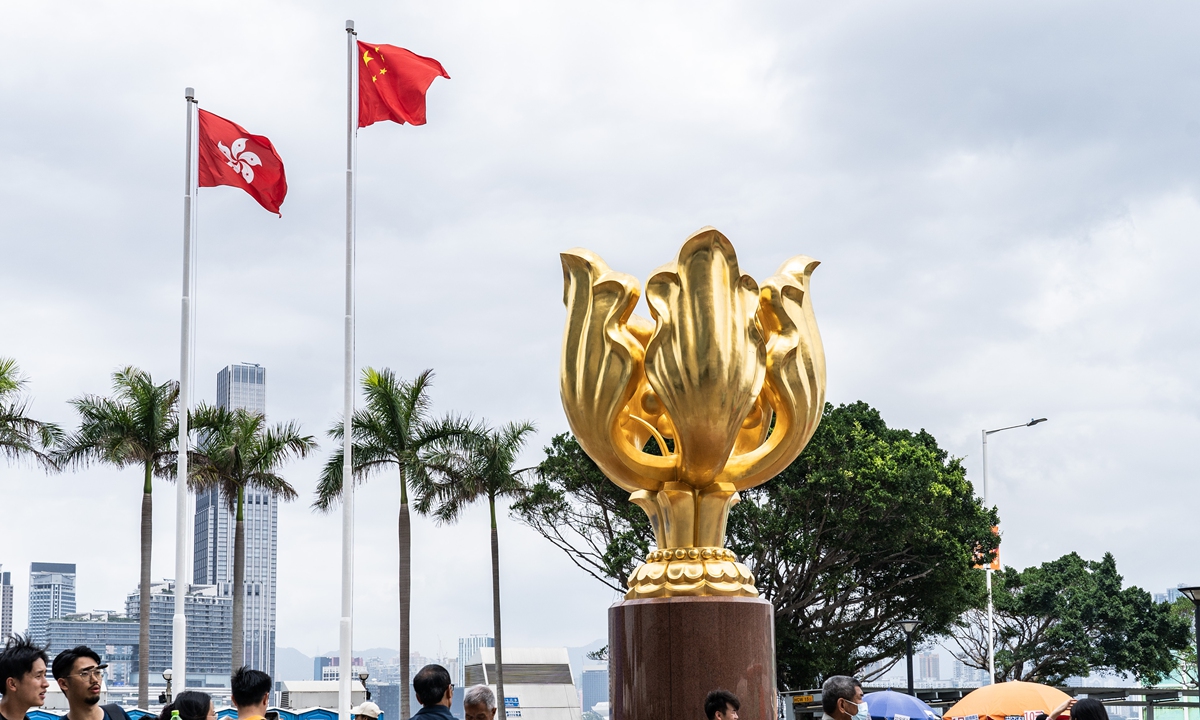
Hong Kong residents and tourists visit the Golden Bauhinia Square on March 23, 2024. Photo: VCG
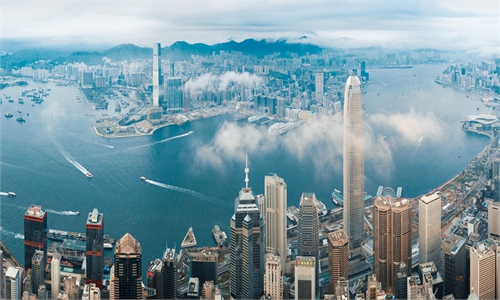
Following the passing of the Article 23 legislation at the Legislative Council (LegCo) of the Hong Kong Special ...


Hong Kong Free Press HKFP
Hong Kong news, breaking updates – 100% Independent, impartial, non-profit
Hong Kong slams ‘political manoeuvres’ as US and Canada urge travellers to exercise caution in city

- Click to share on X (Opens in new window)
- Click to share on Facebook (Opens in new window)
- Click to share on LinkedIn (Opens in new window)
- Click to share on Mastodon (Opens in new window)
- Click to share on WhatsApp (Opens in new window)
- Click to share on Reddit (Opens in new window)
- Click to share on Telegram (Opens in new window)
- Click to print (Opens in new window)
US and Canadian authorities’ calls for caution when travelling to Hong Kong following the enactment of new security legislation amounted to “political manoeuvres” and “twisted remarks,” the city’s government has said .
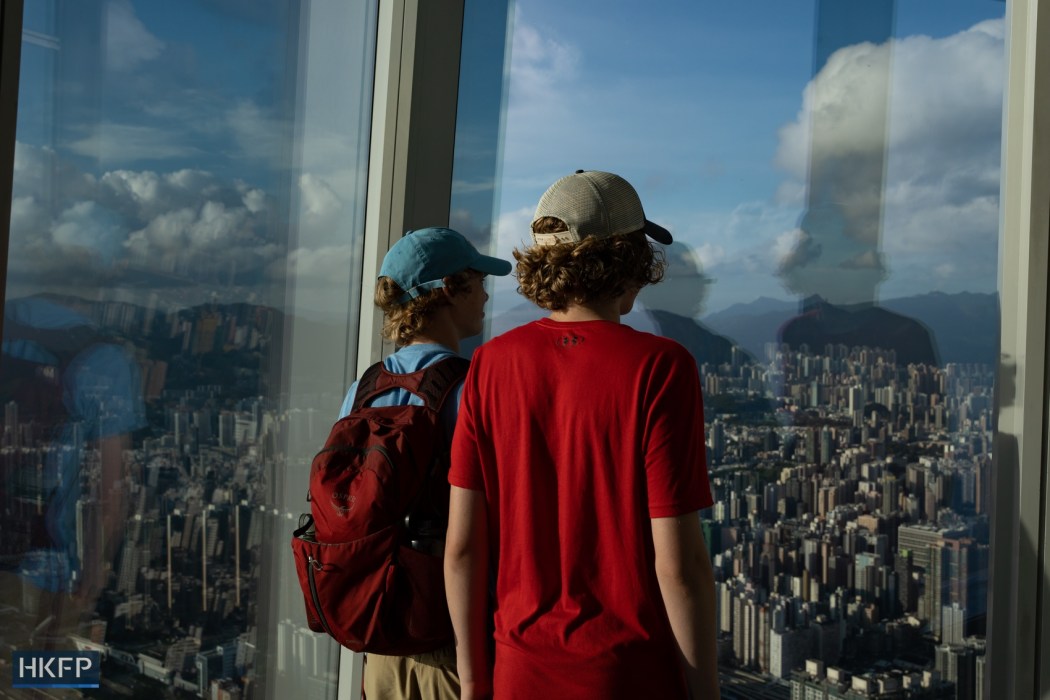
The Hong Kong government on Saturday “strongly condemned” the US and Canada after the two countries warned travellers about “arbitrary enforcement of local laws” under the Beijing-imposed national security law and the newly passed Safeguarding National Security Ordinance .
In the Saturday statement, a government spokesperson defended the laws, saying that the new legislation targets acts endangering national security “with precision” and “defines elements and penalties of the offences with clarity.”
Hong Kong also slammed Australia, the UK, and Taiwan after they updated their travel advisories in a similarly worded rebuttal last month.
According to the US Department of State, Hong Kong is a Level 2 destination, meaning travellers were advised to “exercise increased caution due to the arbitrary enforcement of local laws.”
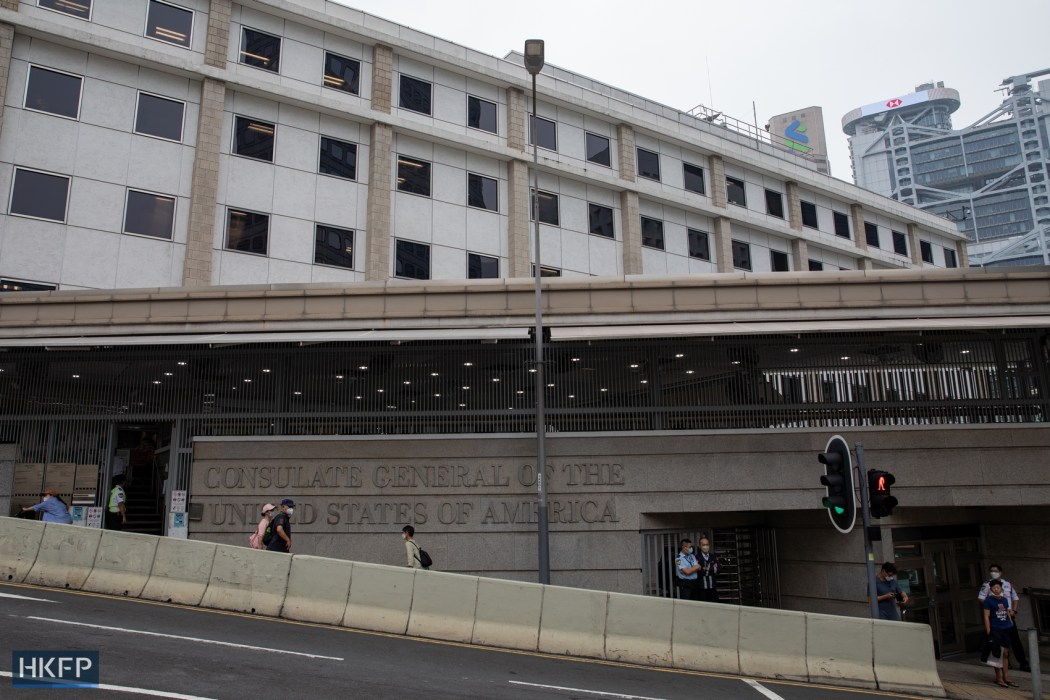
“Following the Hong Kong SAR government’s enactment of its own Safeguarding National Security Ordinance on March 23, 2024, Hong Kong SAR authorities are expected to take additional actions to further restrict civil liberties,” an update made to the travel advisory last Friday read.
The US also cautioned against participating in demonstrations “or any other activities that authorities interpret as constituting an act of secession, subversion, terrorism, or collusion with a foreign country.”
Canada on Thursday advised travellers to exercise a “high degree of caution… due to the risk of arbitrary enforcement of local laws.”
The advisory said that the scope of the city’s security laws could include activities not considered illegal in Canada and that occurred outside Hong Kong, including social media posts.
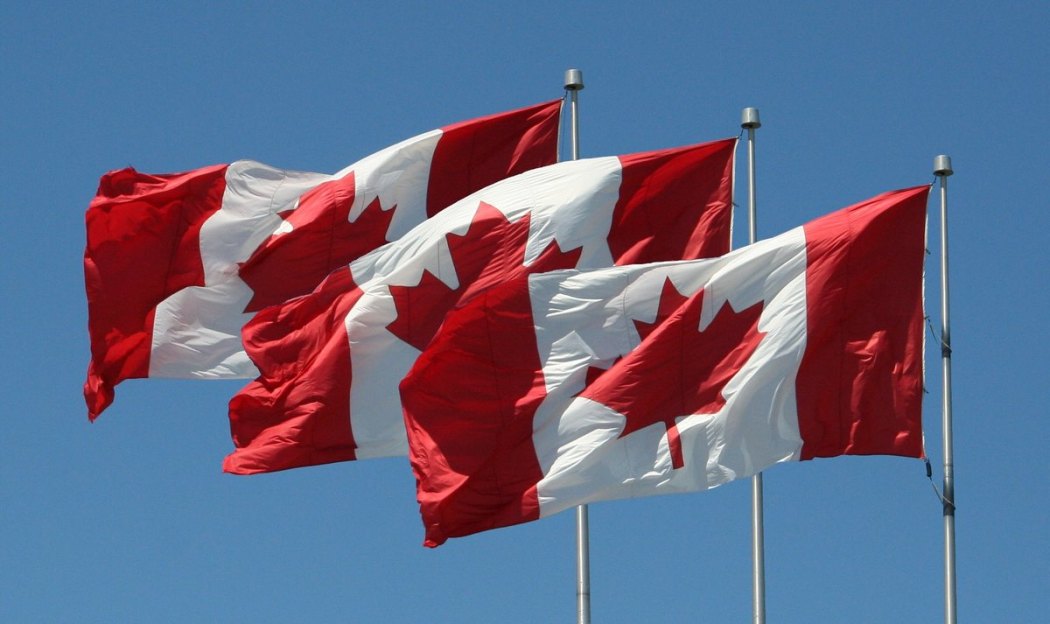
It also said that journalists in Hong Kong faced restrictions in their work. “You should be particularly vigilant if researching or reporting on subjects critical of or sensitive to the government. You may face censorship,” it said.
In the Saturday statement, the Hong Kong said the city “has always welcomed ordinary travellers and businessmen” including those from the US and Canada. “They will not conduct acts and activities endangering national security and will not unwittingly violate the law, and therefore have no reason to be worried.”
“Only intruders trying to plunder and loot will not want Hong Kong to safeguard our country in accordance with the law,” the statement continued.
“The HKSAR Government strongly urges the relevant countries to stop their attempts to interfere Hong Kong in safeguarding national security in accordance with the law by deploying such political tactics as updating the so-called foreign travel advice,” it said.
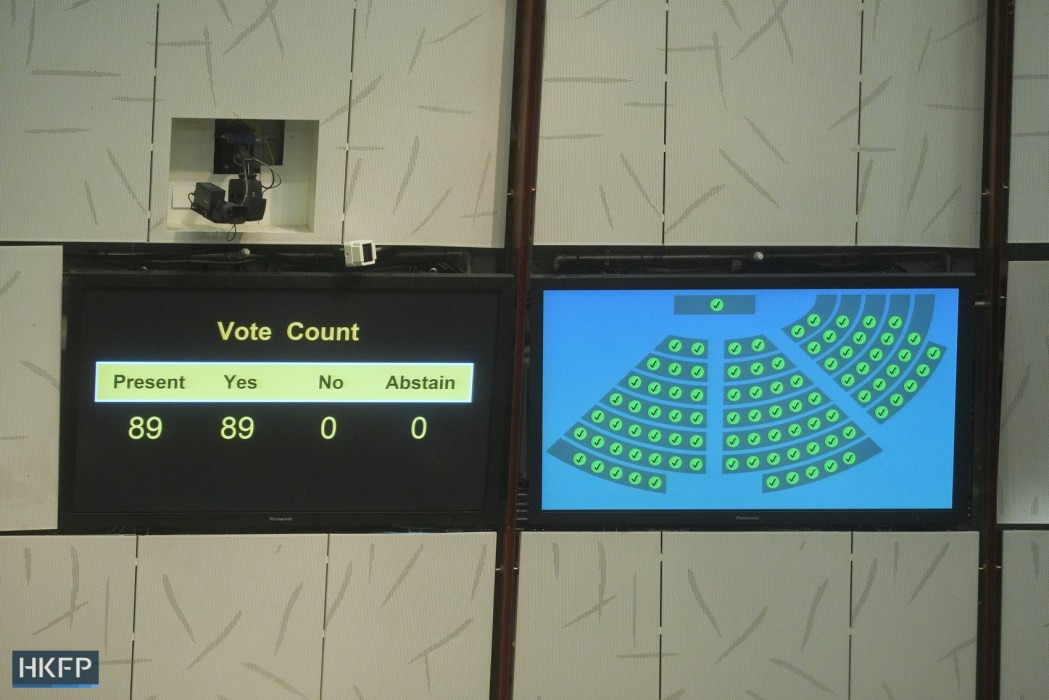
Separate to the 2020 Beijing-enacted security law , the homegrown Safeguarding National Security Ordinance – known locally as Article 23 – targets treason, insurrection, sabotage, external interference, sedition, theft of state secrets and espionage.
It allows for pre-charge detention of to up to 16 days, and suspects’ access to lawyers may be restricted, with penalties involving up to life in prison . Article 23 was shelved in 2003 amid mass protests, remaining taboo for years. But, on March 23, 2024, it was enacted having been fast-tracked and unanimously approved at the city’s opposition-free legislature.
The law has been criticised by rights NGOs , Western states and the UN as vague, broad and “regressive.” Authorities, however, cited perceived foreign interference and a constitutional duty to “close loopholes” after the 2019 protests and unrest .
Support HKFP | Policies & Ethics | Error/typo? | Contact Us | Newsletter | Transparency & Annual Report | Apps

Help safeguard press freedom & keep HKFP free for all readers by supporting our team

LATEST FROM HKFP
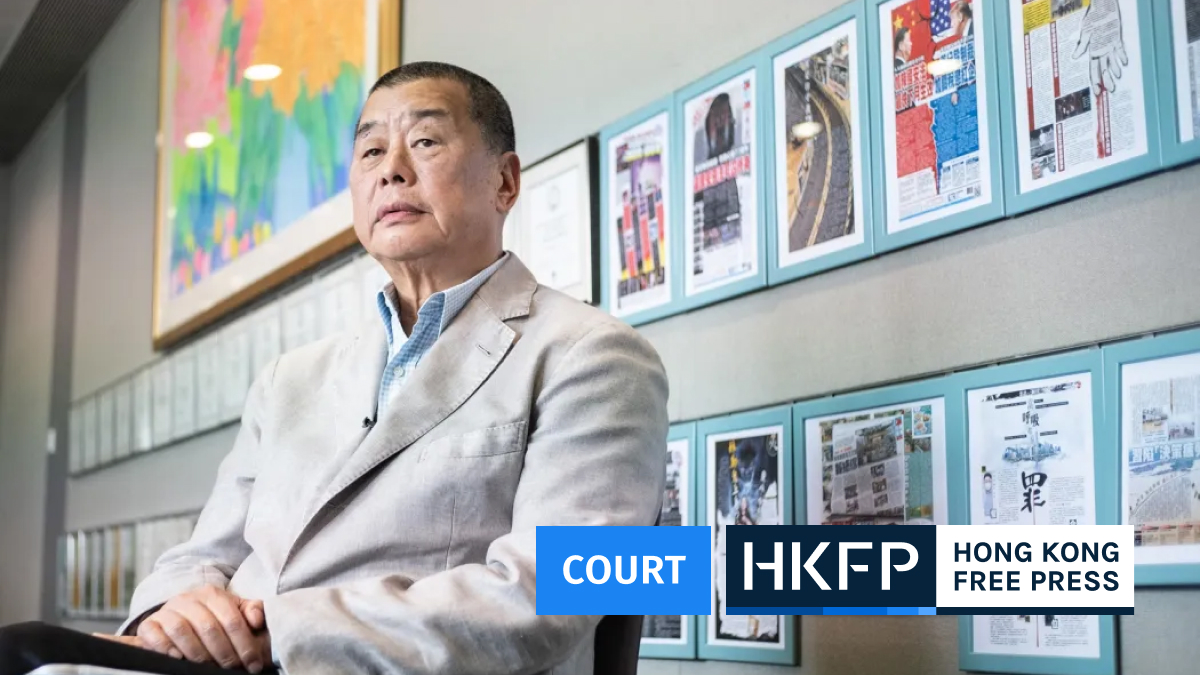
Hong Kong media tycoon Jimmy Lai wanted to ‘unite different sectors’ to achieve ‘China implosion,’ court hears
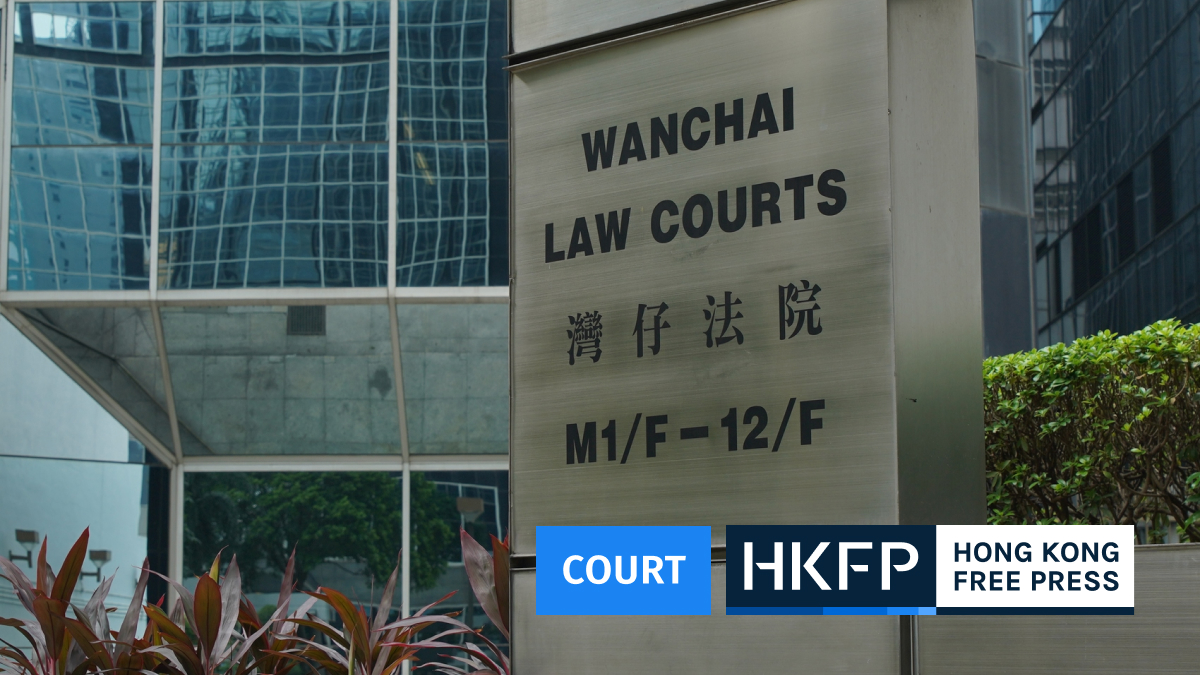
Hong Kong student jailed for 1 year and 4 months over money laundering charge linked to 2019 protest fund

Chinese runner He Jie among 3 stripped of Beijing half marathon medals after controversial finish
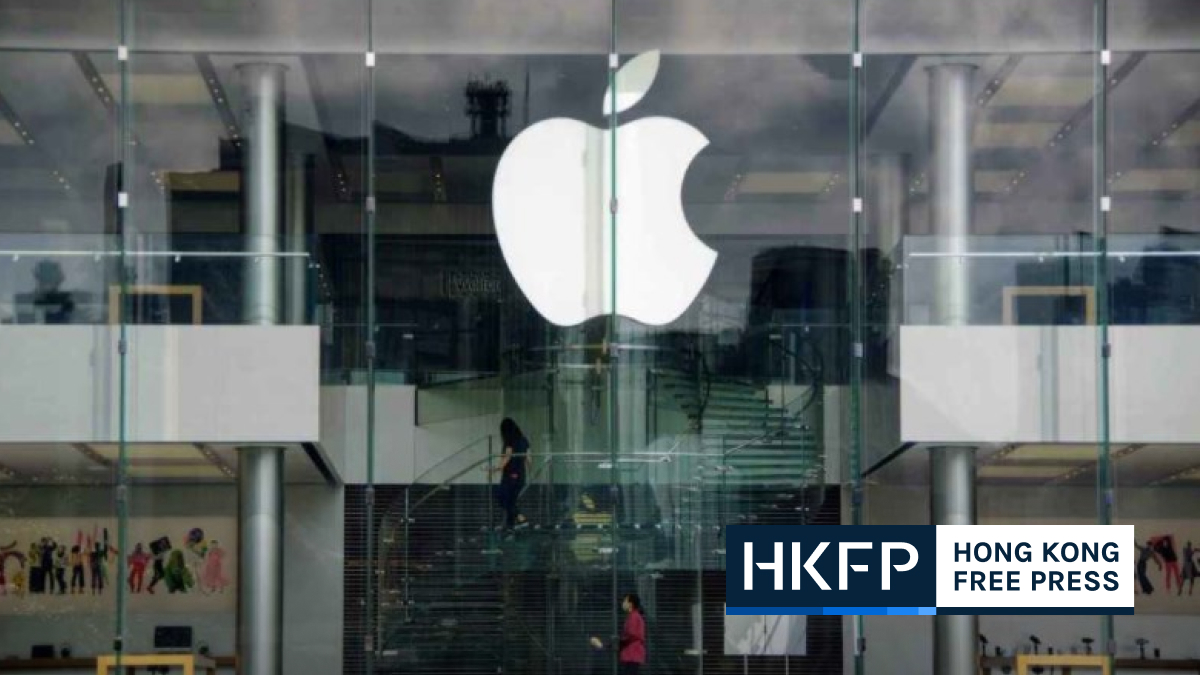
Apple removes WhatsApp, Threads from App Store in China on government orders

HKFP has an impartial stance , transparent funding , and balanced coverage guided by an Ethics Code and Corrections Policy .

Support press freedom & help us surpass 1,000 monthly Patrons : 100% independent, governed by an ethics code & not-for-profit.
Support HKFP | Code of Ethics | Error/typo? | Contact Us | Newsletter | Annual & Transparency Report

James Lee Reporter
James Lee is a reporter at Hong Kong Free Press with an interest in culture and social issues. He graduated with a bachelor’s degree in English and a minor in Journalism from the Chinese University of Hong Kong, where he witnessed the institution’s transformation over the course of the 2019 extradition bill protests and after the passing of the Beijing-imposed security law.
Since joining HKFP in 2023, he has covered local politics, the city’s housing crisis, as well as landmark court cases including the 47 democrats national security trial. He was previously a reporter at The Standard where he interviewed pro-establishment heavyweights and extensively covered the Covid-19 pandemic and Hong Kong’s political overhauls under the national security law.
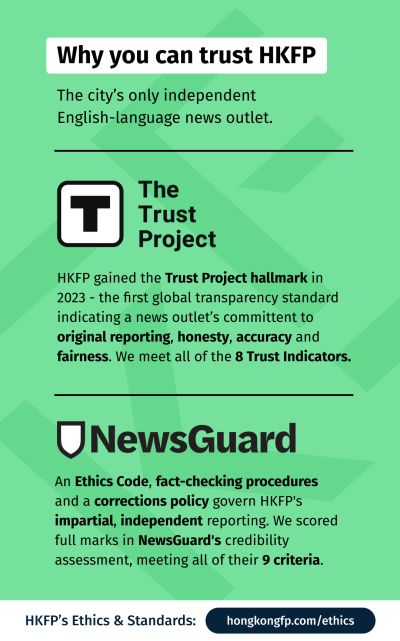
HKFP is a proud member of:

Latest Stories
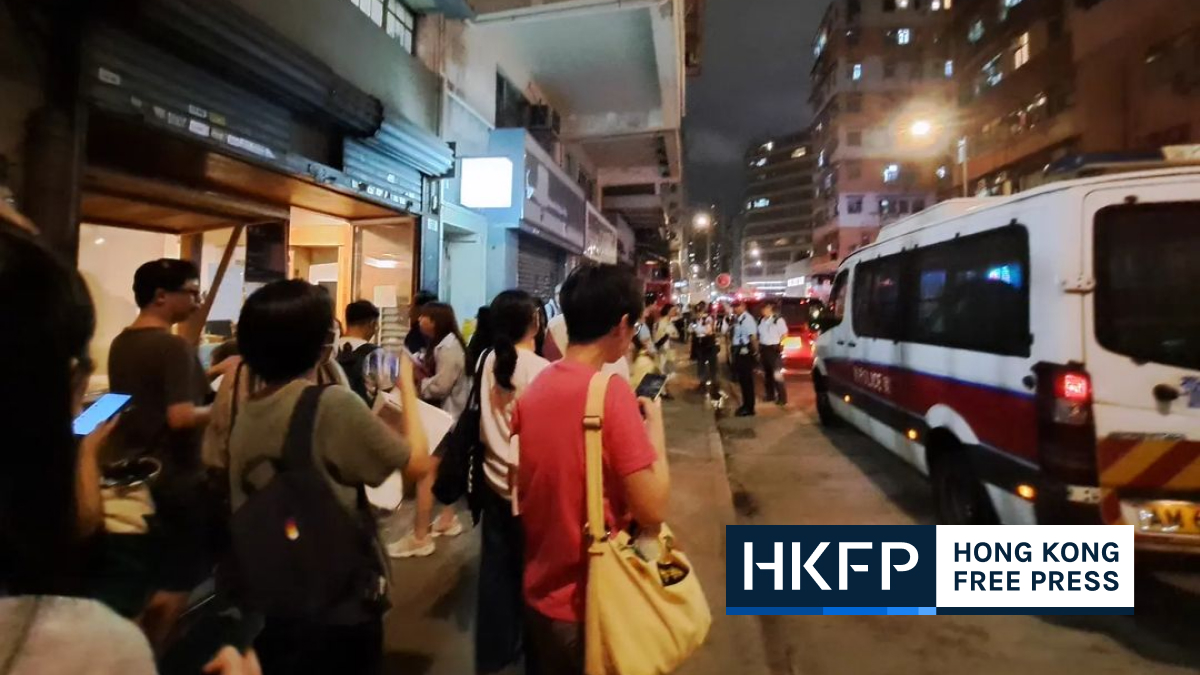
Hong Kong police check IDs during ‘crowd control’ operation outside event for pro-democracy singer
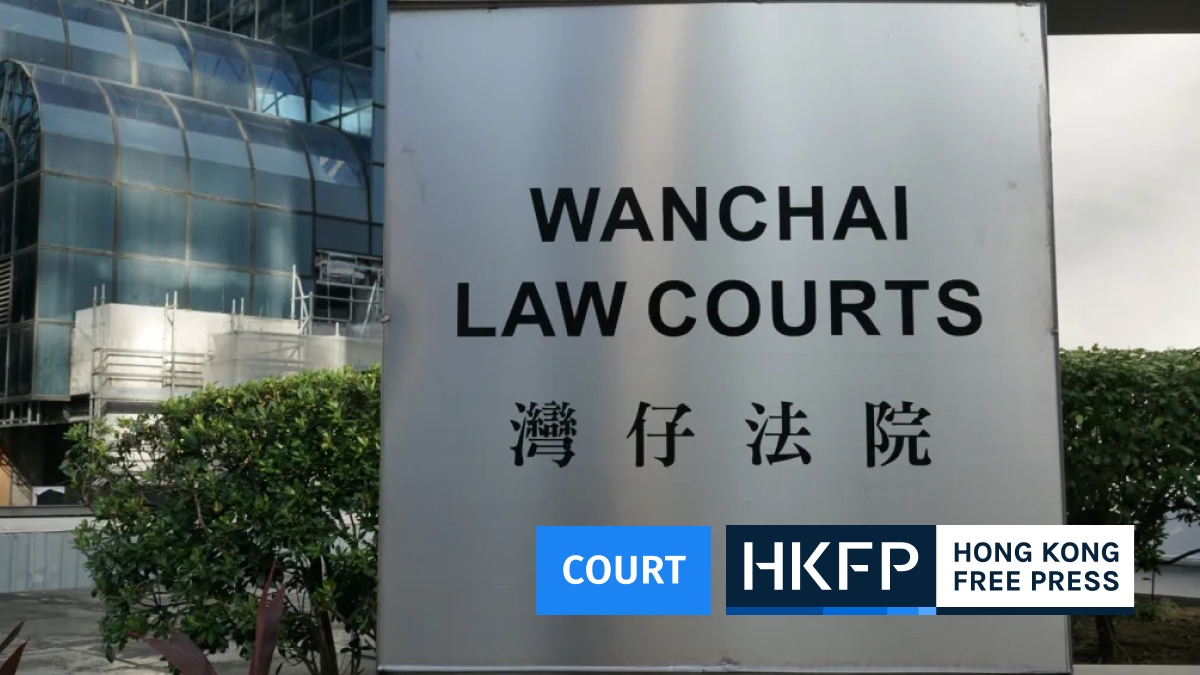
4 years, 7 months jail for man involved in Yuen Long mob attack amid Hong Kong protests in 2019
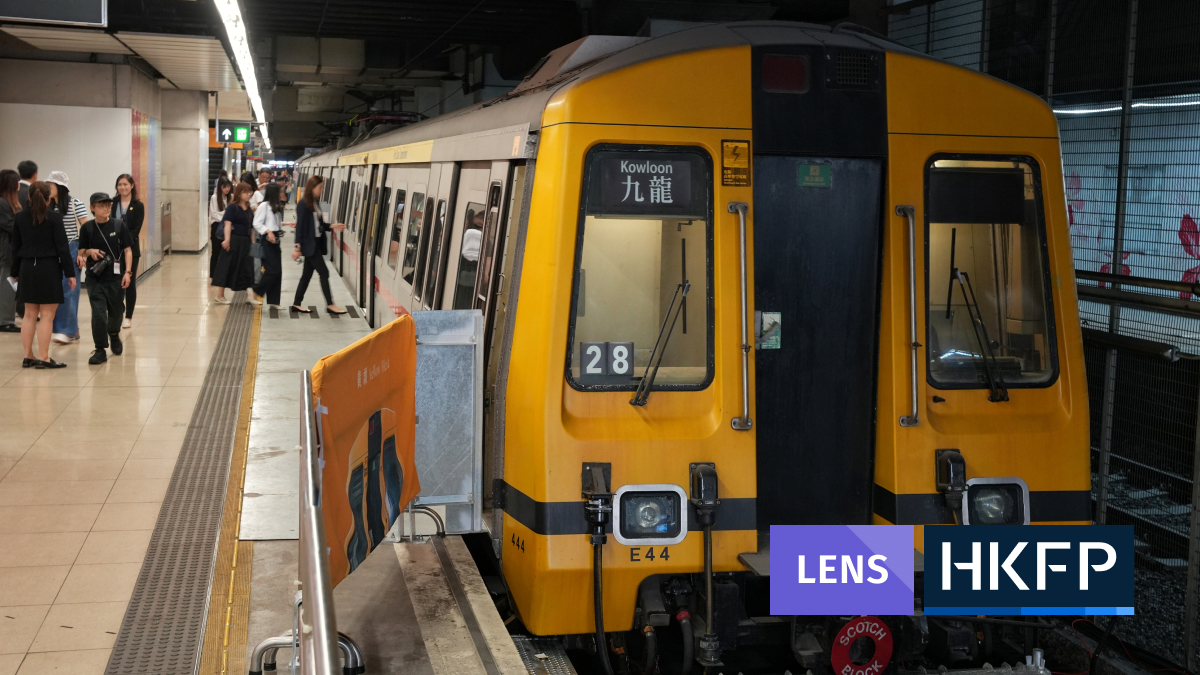
HKFP Lens: Revisiting Hong Kong’s old railways at the MTR’s new exhibition
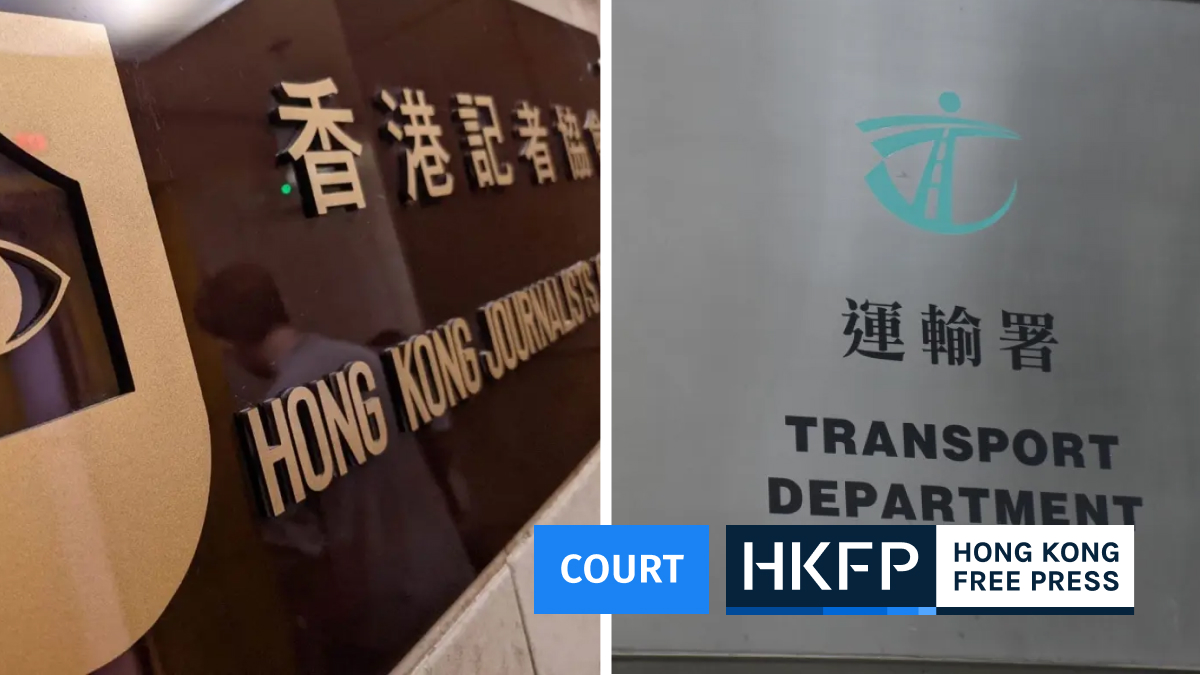
Hong Kong judge allows press group to challenge new restrictions on access to vehicle registry
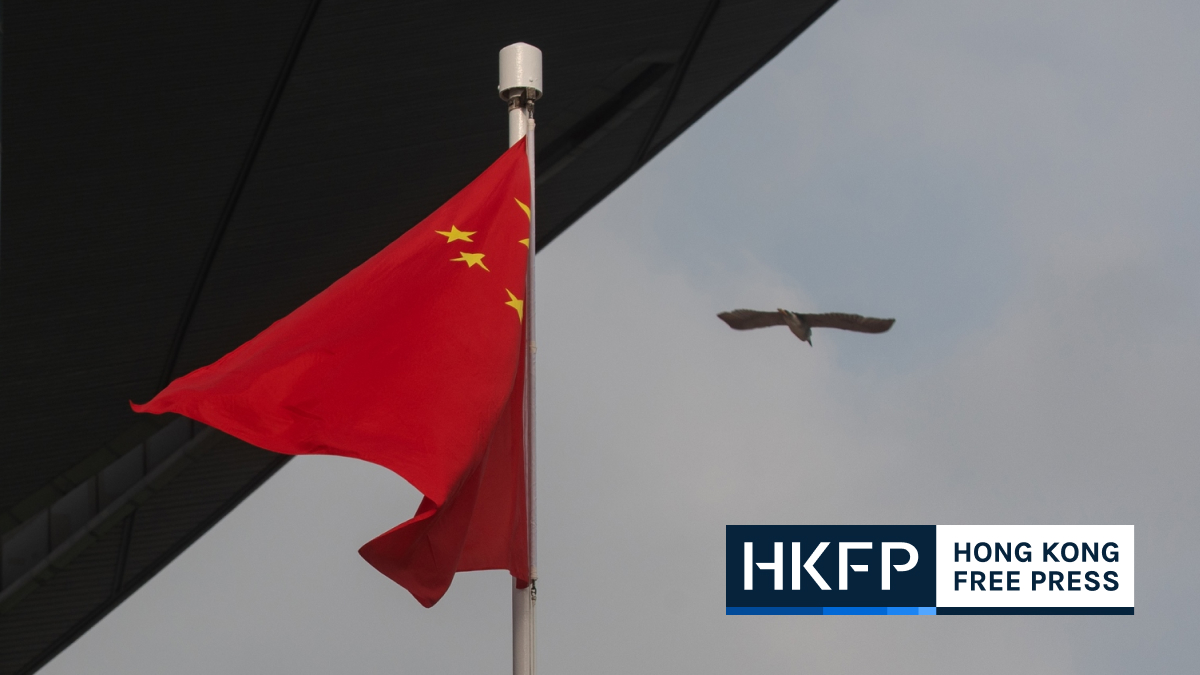
Beijing accuses US of hypocrisy after Pres. Joe Biden says China is ‘xenophobic,’ ‘cheating’ on trade

Hong Kong housing chief defends HK$4.4 billion operating costs of temporary housing scheme
Something went wrong. Please refresh the page and/or try again.

features & interviews
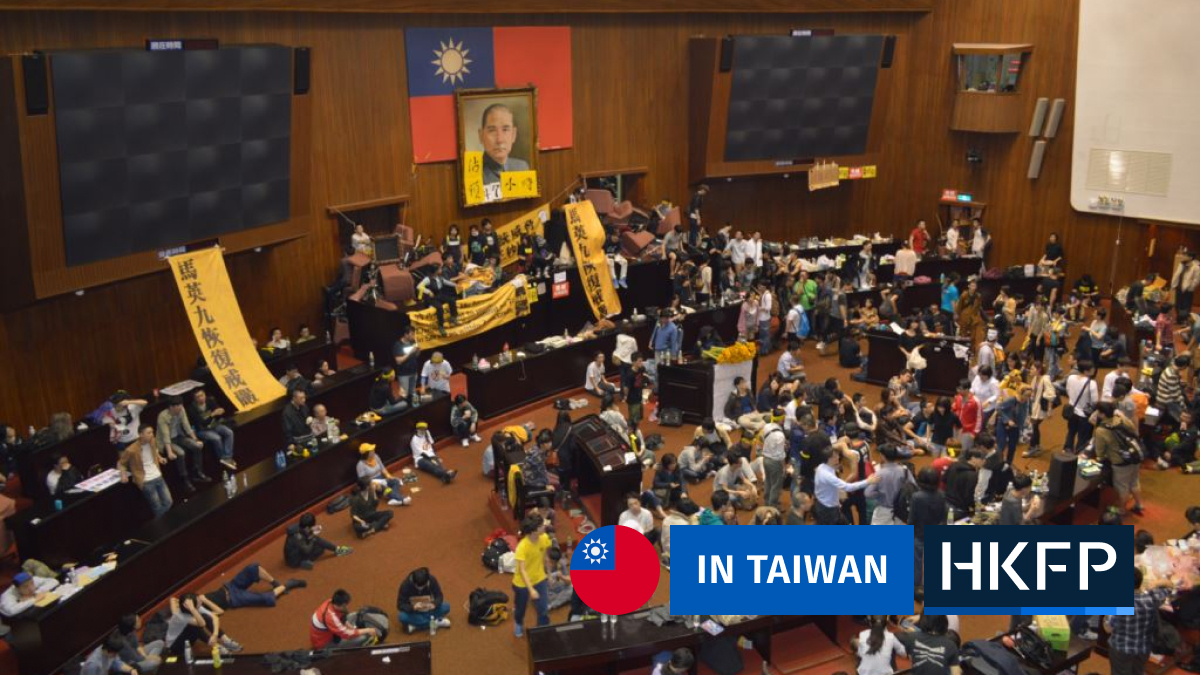
10 years on: How Taiwan’s Sunflower Movement sowed the seeds of a new civil society

Interview: One artist, many instruments and a ‘melting pot’ of genres – FKJ brings his unique style back to Hong Kong
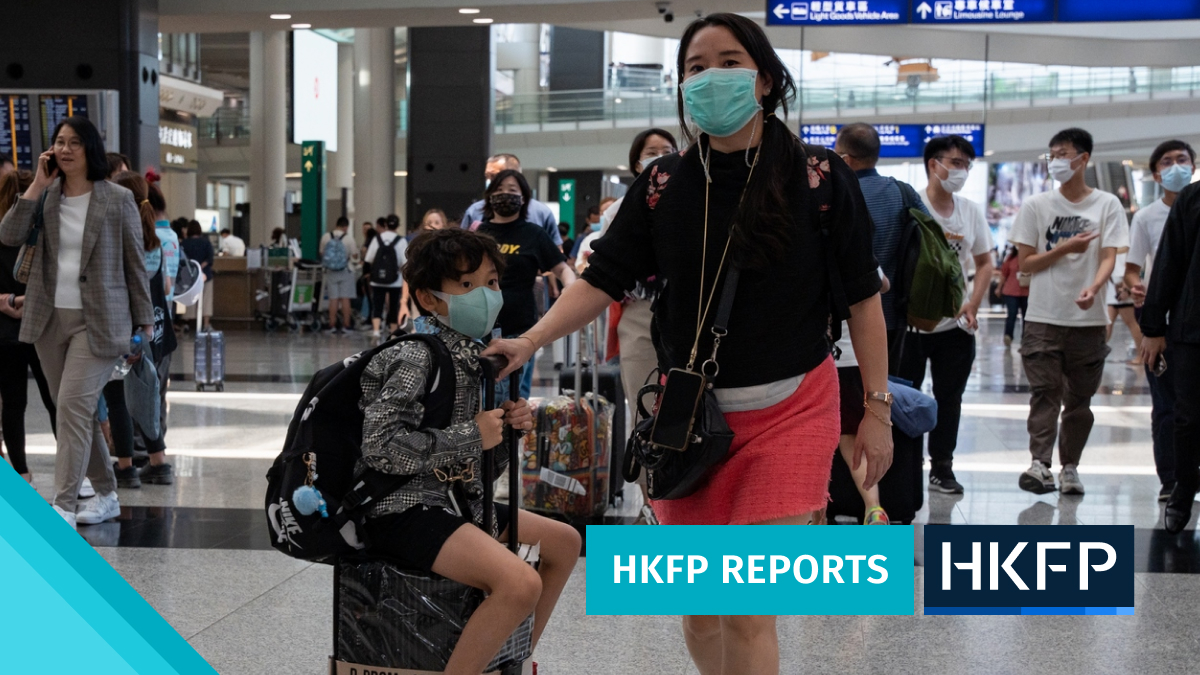
Hong Kong struggles to win back long-haul tourists amid fewer flights and travel warnings
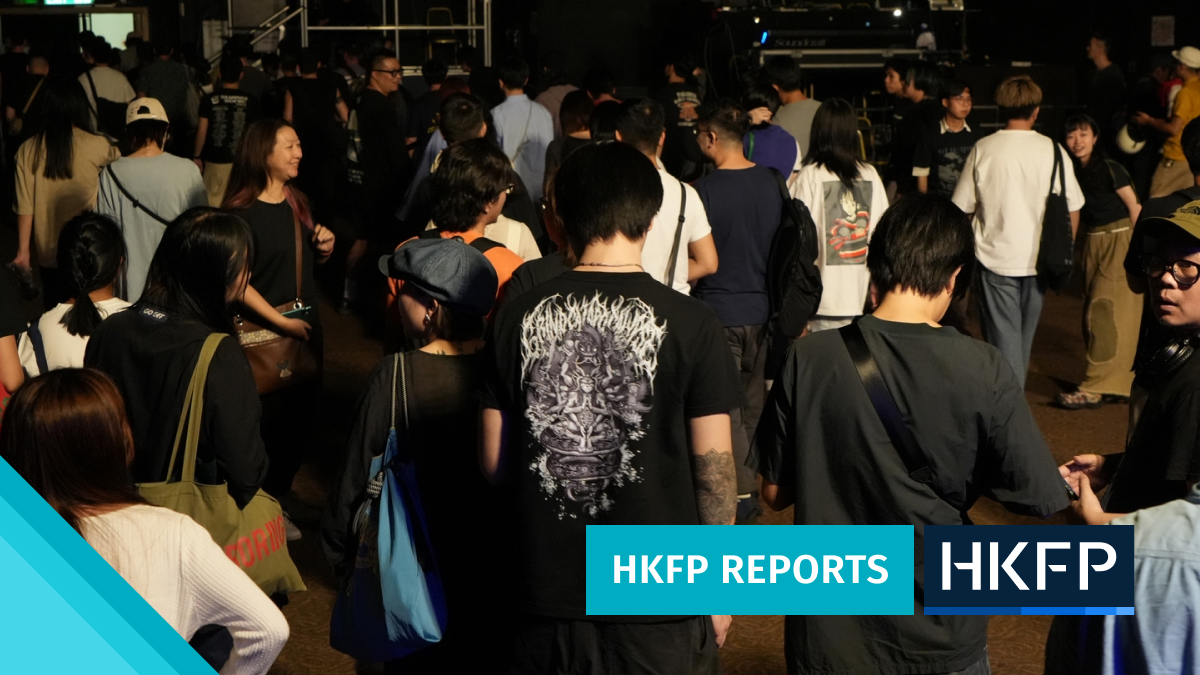
Goodbye Music Zone: As the mid-sized Hong Kong venue closes its doors, it leaves a hole in local indie scene
Views expressed by opinion writers & advertisers are not necessarily shared by HKFP.
Where to find HKFP:
- HKFP Mobile Apps .
- HKFP Newsletter .
- HKFP Podcast .
- HKFP Facebook .
- HKFP Instagram .
- HKFP LinkedIn .
- HKFP Mastodon .
- HKFP Telegram .
- HKFP X/Twitter .
- HKFP YouTube .
- HKFP Apple News .
- HKFP Flipboard .
- HKFP News360 .
- HKFP Pushbullet .
- HKFP Whatsapp .
About HKFP:
- Advertise with HKFP .
- Announcements .
- Contact HKFP .
- Community Guidelines .
- Corrections Policy .
- Corrections Log .
- Documentary on HKFP .
- Freelance Charter .
- Newspaper Registration (periodical) .
- Policies, Ethics & Standards .
- Privacy, T's & C''s .
- Security Law .
- Staff Roster .
HKFP Partnerships:

Most-read stories today

About The Trust Project
The Trust Project is a collaboration among news organizations around the world. Its goal is to create strategies that fulfill journalism’s basic pledge: to serve society with a truthful, intelligent and comprehensive account of ideas and events.

- Font Size A A A
The HKMA alerts the public to bogus messages and documents
Press releases.
The Hong Kong Monetary Authority (HKMA) has received enquiries from members of the public regarding messages received on the instant messaging application WhatsApp or documents purportedly issued in the name of the HKMA. These messages and documents demand money transfers to pay charges or taxes in order to recover frozen assets or payments made to fraudsters. Some cases involved claims that the refund or unfreezing arrangement will be carried out through an overseas institution, and the name of the institution is similar to the name of a local representative office established in Hong Kong by an overseas bank.
The HKMA wishes to reiterate that it will not contact the public regarding personal financial matters, nor will it communicate with the public by forming groups on instant messaging applications.
Regarding the local representative offices of overseas banks, according to the Banking Ordinance, their role is primarily limited to liaison work with their customers in Hong Kong and they are not permitted to engage in any banking and deposit-taking business. A list of authorized institutions is available on the HKMA’s website ( www.hkma.gov.hk ). Members of the public may also verify the status of an entity by emailing the HKMA’s public enquiry service ( [email protected] ).
The HKMA has reported the cases to the Hong Kong Police Force. Members of the public who suspect that they have become victims of fraudulent acts should contact the Commercial and Technology Crime Hotline of the Hong Kong Police Force at 2860 5012 for further action and investigation by the police.
Hong Kong Monetary Authority 18 April 2024
- 19 Apr 2024 The Monetary Authority takes disciplinary action against Hua Nan Commercial Bank, Ltd., Hong Kong Branch for contraventions of Anti-Money Laundering and Counter-Terrorist Financing Ordinance
- 19 Apr 2024 HKMA and SFC consult on annual updates to Financial Services Providers list under OTC derivatives regulatory regime
- 19 Apr 2024 Website Alert – Fraudulent website related to Bank Julius Baer & Co. Ltd.
- 18 Apr 2024 HKMA welcomes the commencement of service of “Credit Data Smart”
- 18 Apr 2024 Composite Interest Rate: End of March 2024
We’re sorry, this site is currently experiencing technical difficulties. Please try again in a few moments. Exception: request blocked
We've detected unusual activity from your computer network
To continue, please click the box below to let us know you're not a robot.
Why did this happen?
Please make sure your browser supports JavaScript and cookies and that you are not blocking them from loading. For more information you can review our Terms of Service and Cookie Policy .
For inquiries related to this message please contact our support team and provide the reference ID below.
- Share full article
Advertisement
The U.S. issues new travel guidelines, warning that Iran will avenge the killings of senior commanders.
The State Department has barred its employees from traveling to large parts of Israel. Iran has repeatedly vowed to strike back over the deadly bombing this month of an Iranian Embassy complex in Syria.

By Liam Stack and Eric Schmitt
- April 12, 2024
Several countries including the United States have issued new travel guidelines for Israel and the surrounding region, as the Israeli military said its forces were “highly alert” for a possible Iranian strike in retaliation for the killings of several commanders.
Iran has repeatedly vowed to strike back at Israel over the bombing of an Iranian Embassy complex in Damascus, Syria, this month that killed three generals and four other military officers. An American official said on Friday that Washington expects an attack by Iran against Israel that would be bigger than recent attacks in the long shadow war between the two countries, but not so big that it would draw the United States into war. The official spoke on condition of anonymity because of the sensitivity of the matter.
The U.S. State Department on Thursday barred its employees from traveling to large parts of Israel, the first time the U.S. government had restricted the movement of its employees in this way since the war in Gaza began more than six months ago.
On Thursday, Britain told its citizens that they “should consider leaving” Israel and the Palestinian territories “if it is safe to do so.” On Friday, India told its citizens “not to travel to Iran or Israel till further notice,” while France advised people not to travel to Israel, Iran or Lebanon and evacuated the families of French diplomats from Iran.
Asked about the U.S. travel warning , Matthew Miller, the State Department spokesman, said at a news briefing Thursday: “We have seen Iran making public threats against Israel in the past few days.” He declined to provide details about any specific information that prompted the warning.
The new guidelines bar U.S. government employees and their families from traveling to locations outside the Tel Aviv, Jerusalem and Beersheba metropolitan areas “out of an abundance of caution” until further notice. The State Department said U.S. personnel could move among those areas for personal travel.
The top American military commander for the Middle East, Gen. Michael E. Kurilla, traveled to Israel to coordinate a response to possible Iranian retaliation, U.S. officials said.
“Our enemies think that they will divide Israel and the United States,” the Israeli defense minister, Yoav Gallant, said in a statement on Friday after meeting with General Kurilla. “They are connecting us and are strengthening the relationship between us.”
If Iran attacks, he added, “we will know how to respond.”
On Thursday, the Israeli military’s chief spokesman, Rear Adm. Daniel Hagari, said that the armed forces were “highly alert and prepared” for any action Iran might take, even as the timing and scale of any response remained unclear. Analysts say that Tehran, which has long used a network of proxy forces to project power across the Middle East, wants to avoid igniting a full-fledged war that could drag in the United States and threaten the survival of Iran’s regime.
“For years, and even more so during the war, Iran has been financing, directing and arming its proxies — in Lebanon, Gaza, Syria, Iraq and Yemen — to attack the state of Israel,” he said. “An attack from Iranian territory would be clear evidence of Iran’s intentions to escalate the Middle East and stop hiding behind the proxies.”
Liam Stack is a Times reporter covering the Israel-Hamas war from Jerusalem. More about Liam Stack
Eric Schmitt is a national security correspondent for The Times, focusing on U.S. military affairs and counterterrorism issues overseas, topics he has reported on for more than three decades. More about Eric Schmitt

IMAGES
VIDEO
COMMENTS
Updated due to new national security legislation in the Hong Kong Special Administrative Region. Summary: Reconsider travel to Mainland China due to the arbitrary enforcement of local laws, including in relation to exit bans, and the risk of wrongful detentions. Exercise increased caution when traveling to the Hong Kong Special Administrative Region (SAR) due to the arbitrary enforcement of ...
The Outbound Travel Alert (OTA) System aims to help people better understand the risk or threat to personal safety in travelling to 88 countries/territories that are the more popular travel destinations for Hong Kong residents (HKRs). When there are signs of threat in a place that may affect the personal safety of HKRs, the Security Bureau will assess and consider the need to issue an OTA ...
Travel Advisory. We encourage you to enroll in the Smart Traveler Enrollment Program (STEP) to receive the latest updates in Hong Kong and Macau. Our travel alerts are also posted on our webpage here. Please review our Hong Kong Country Information and Macau Country Information pages. For the latest information about COVID-19 quarantine and ...
Hong Kong was classified as a "Level 2.". The U.S. Department of State re-issued a travel warning against heading to China, including Hong Kong and Macau, due to the possibility of being ...
The Travel Advisory for Hong Kong has been updated to reflect health and security conditions on the ground. The Travel Advisory is now at Level 4: - Do Not Travel due to COVID-19 and COVID-19 related restrictions, including the risk of parents and children being separated. U.S. citizens should also reconsider travel to Hong Kong due to arbitrary enforcement of local laws.
The Government has adopted stringent measures to prevent the Omicron COVID-19 variant from spreading in the community as it continues its preparation work on the resumption of quarantine-free travel between the Mainland and Hong Kong. Chief Executive Carrie Lam made the remarks ahead of this morning's Executive Council meeting and noted that ...
Chief Executive Carrie Lam today said that while Hong Kong's primary advantage is being a gateway to the Mainland, certain factors must be taken into account when devising anti-COVID-19 strategies. She made the statement during a media session ahead of this morning's Executive Council meeting. Mrs Lam explained that if Hong Kong decided to ...
Federico Rios for The New York Times. The Covid-19 pandemic has severely set back the fight against other global scourges like H.I.V., tuberculosis and malaria, according to a sobering new report ...
In March last year, the US travel advisory for Hong Kong was upgraded to level four, with Americans warned about the risk of parents and children being separated under stringent Covid-19 policies ...
September 15, 2020 / 6:51 AM EDT / AP. Beijing — The U.S. on Tuesday issued a sweeping new advisory warning against travel to mainland China and Hong Kong, citing the risk of "arbitrary ...
At least 28 countries have issued travel advisories about Hong Kong, according to HK's Airport Authority Chief Executive Lam Tin-fuk. Those countries include the United States, Australia, United ...
2 of 2 | . FILE - In this July 4, 2020, file photo, a woman carries an American flag during a protest outside the U.S. Consulate in Hong Kong. The U.S. has issued a new advisory Tuesday, Sept. 15, 2020, warning against travel to mainland China and Hong Kong, citing the risk of "arbitrary detention" and "arbitrary enforcement of local laws." (AP Photo/Kin Cheung, File)
The Hong Kong observatory issues alerts before a significant storm or other meteorological risk. If you decide to travel to Hong Kong during the rainy season: know that you may expose yourself to safety risks; be prepared to change your travel plans on short notice, including cutting short or cancelling your trip
FCDO travel advice for Hong Kong. Includes safety and security, insurance, entry requirements and legal differences. ... Get email alerts Warnings and insurance Still current at: 18 April 2024 ...
Hong Kong Travel Advisory: Level 2: Exercise Increased Caution: ... Reconsider Travel: July 31, 2023: Bonaire Travel Advisory: Level 1: Exercise Normal Precautions ... Take 90 Seconds for Safer Travel. Travel Advisory Levels. TRAVEL ADVISORIES AND ALERTS: THE DETAILS Enroll in STEP. Subscribe to get up-to-date safety and security information ...
Ad Feedback. On June 30, the Chinese government introduced a national security law in Hong Kong that outlaws "acts of secession, subversion of state power, terrorist activities and collusion ...
The US Department of State released a new travel advisory Friday for US citizens traveling to mainland China, Hong Kong and Macau suggesting travelers "reconsider travel" to the areas due to "arbitrary enforcement of local laws…and the risk of wrongful detentions.". The advisory for mainland China states: U.S. citizens traveling or residing in the PRC may be detained without access ...
Australian Government travel advice for Hong Kong. Exercise a high degree of caution. Travel advice level YELLOW. Understand the risks, safety, laws and contacts. ... If the warning level is Typhoon 8 or Black Rain Signal, businesses, transport services and the Australian Consulate-General will close. Follow advice from local officials.
Alerts. Hong Kong Travel Advisory: Level 2: Exercise Increased Caution, April 12, 2024 (13 April, 2024) Consular Services for U.S. Citizens in Macau on Wednesday, May 15, 2024 (11 April, 2024) Consular Services for U.S. Citizens in Macau on Wednesday, March 20, 2024 (4 March, 2024) Voting in 2024 U.S. Federal Elections (29 January, 2024)
Warnings over travel to Hong Kong following the enactment of the new, domestic security law amount to "political manoeuvres" and "scaremongering" remarks, the city's authorities claim.
The following tips will help Hong Kong residents to prepare before departure and avoid difficulties while abroad. Before departure: Ensure ample validity on your travel document and obtain the necessary visas. Purchase suitable travel insurance. Inform family or friends of your contact details and itinerary. Write down the details of emergency ...
Hong Kong residents and tourists visit the Golden Bauhinia Square on March 23, 2024. Photo: VCG. The Commissioner's Office of the Chinese Foreign Ministry in the Hong Kong Special Administrative ...
The Hong Kong government on Saturday "strongly condemned" the US and Canada after the two countries ... Hong Kong struggles to win back long-haul tourists amid fewer flights and travel warnings.
April 1, 2024 at 10:37 PM PDT. Listen. 2:59. Hong Kong became a ghost town during the Easter holiday as residents made a record number of trips out of town — particularly to mainland China ...
China's ambassador to Canada has left his post after nearly five years, a period marked by heightened tensions between the two countries. Cong Peiwu has returned to China, according to a ...
The HKMA has reported the cases to the Hong Kong Police Force. Members of the public who suspect that they have become victims of fraudulent acts should contact the Commercial and Technology Crime Hotline of the Hong Kong Police Force at 2860 5012 for further action and investigation by the police. Hong Kong Monetary Authority. 18 April 2024 ...
If you decide to travel to the Hong Kong SAR: Enter the Hong Kong SAR on your U.S. passport and keep it with you. Read the travel information page for the Hong Kong SAR. Enroll in the Smart Traveler Enrollment Program (STEP) to receive alerts and make it easier to locate you in an emergency. Be aware of your surroundings. Avoid demonstrations.
Address: Shop 6, The Galleria, 9 Queen's Road Central. ☏: +852 2180 6799 — Venus Feng. Thanks for reading our newsletter! Subscribe here if you haven't, and send any feedback or ideas our way ...
The U.S. issues new travel guidelines, warning that Iran will avenge the killings of senior commanders. The State Department has barred its employees from traveling to large parts of Israel.